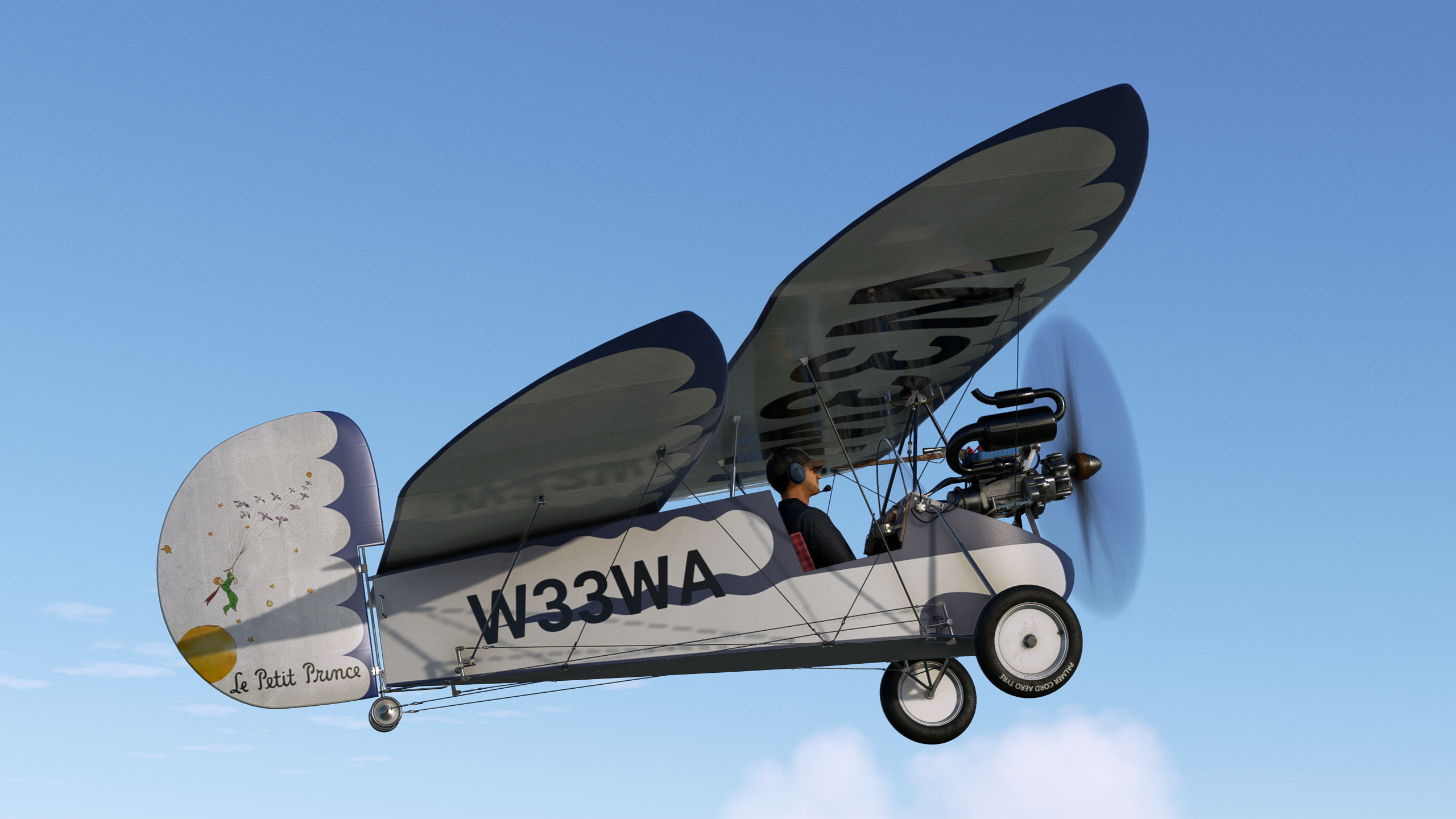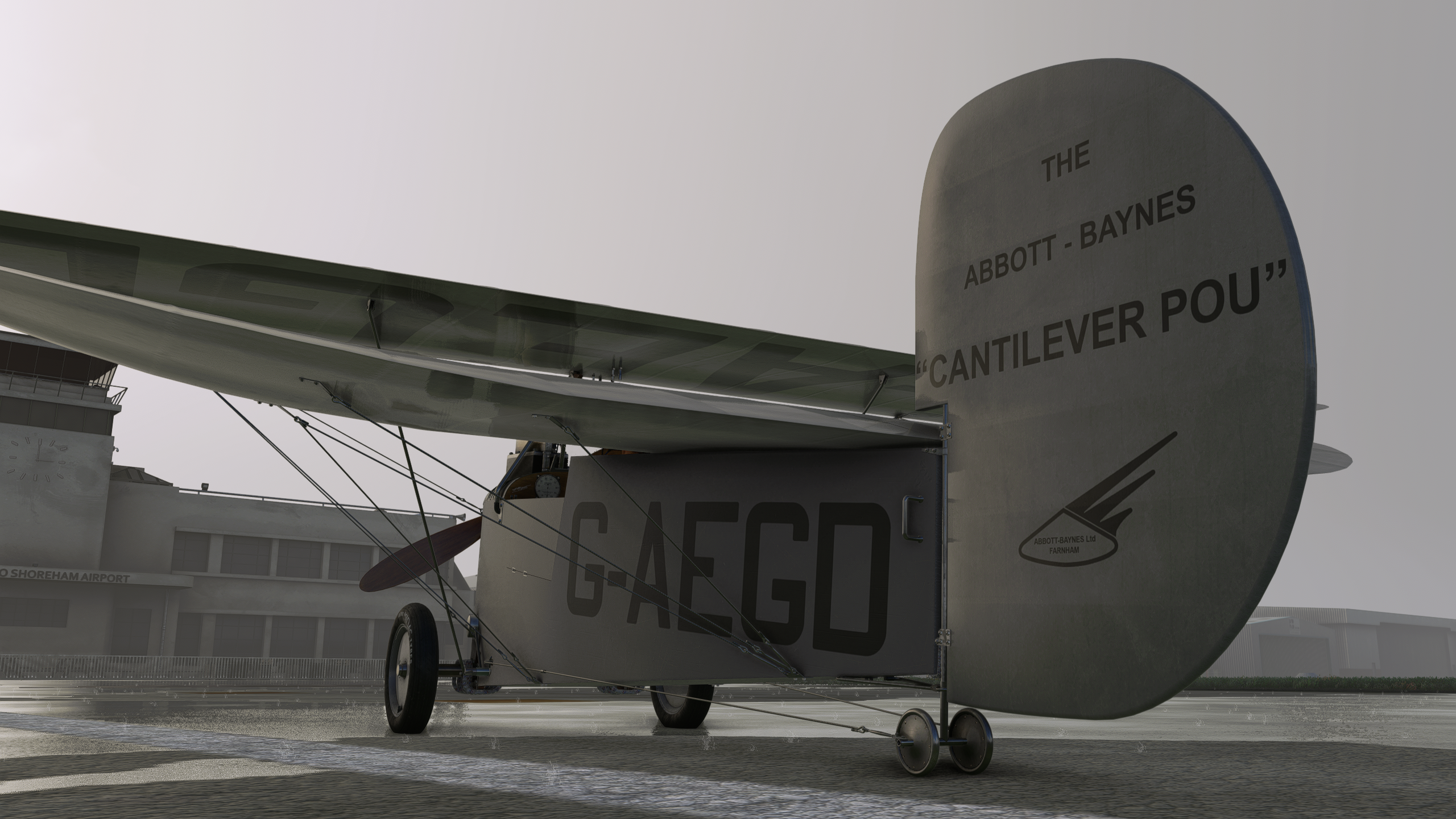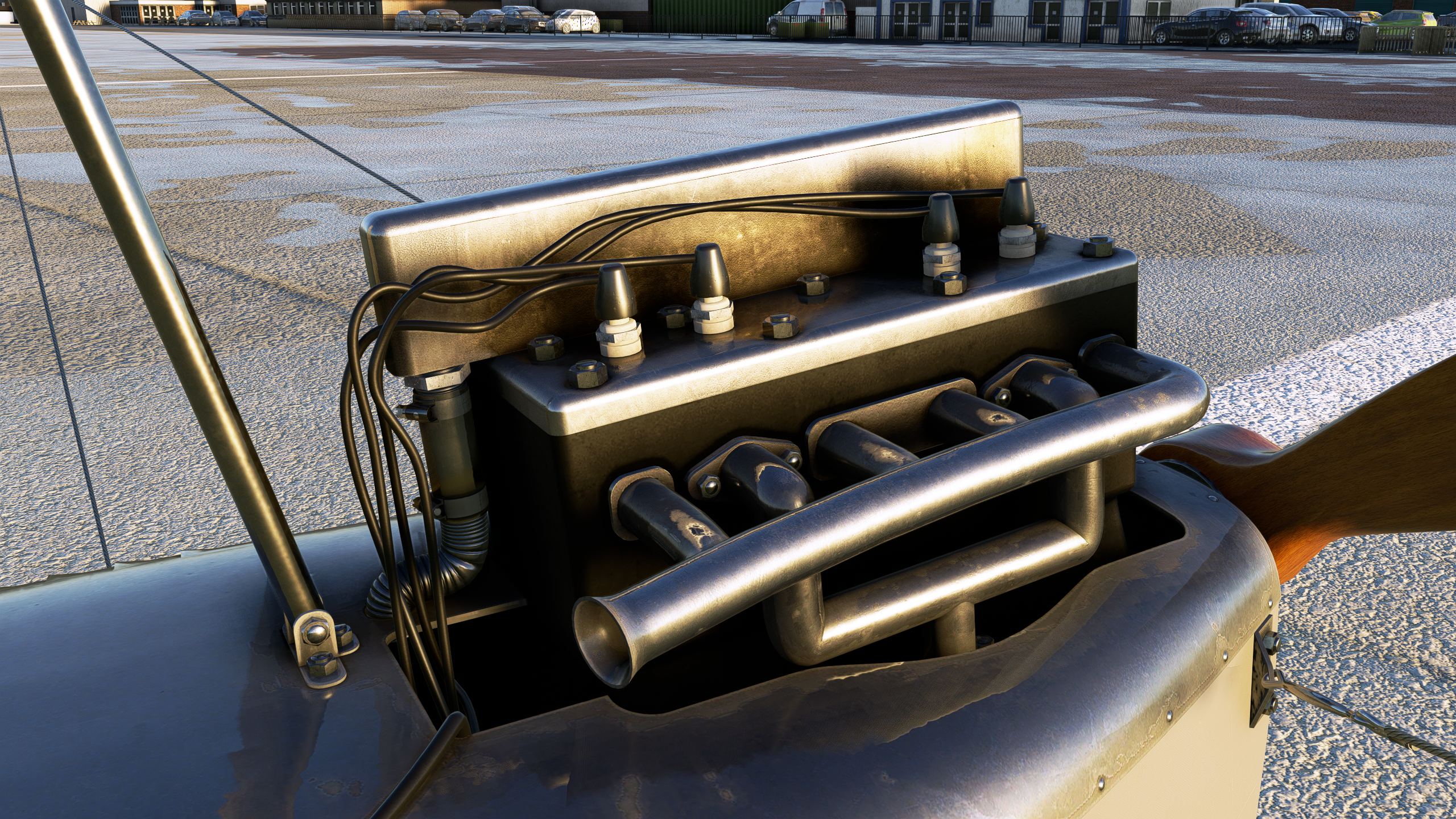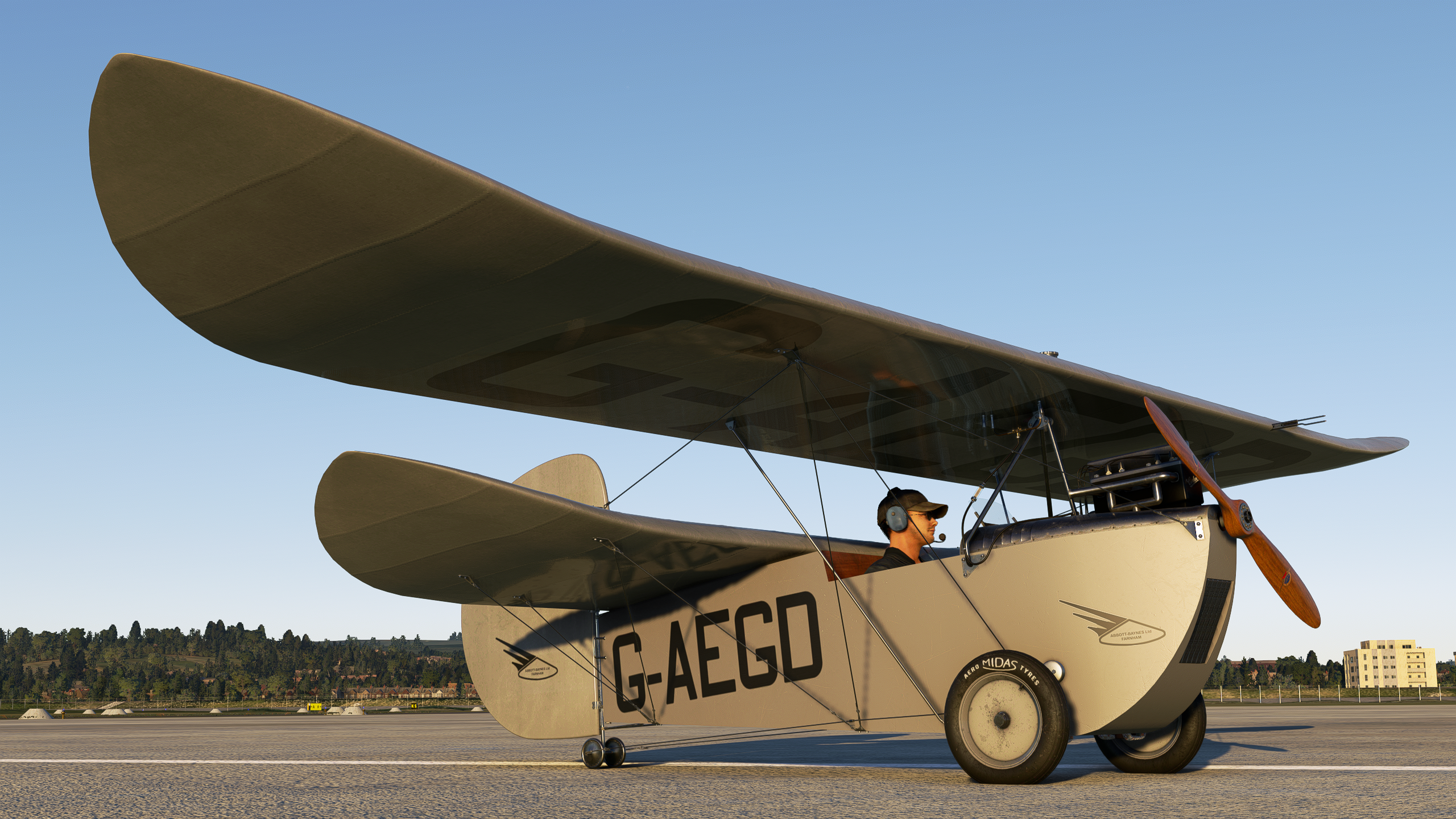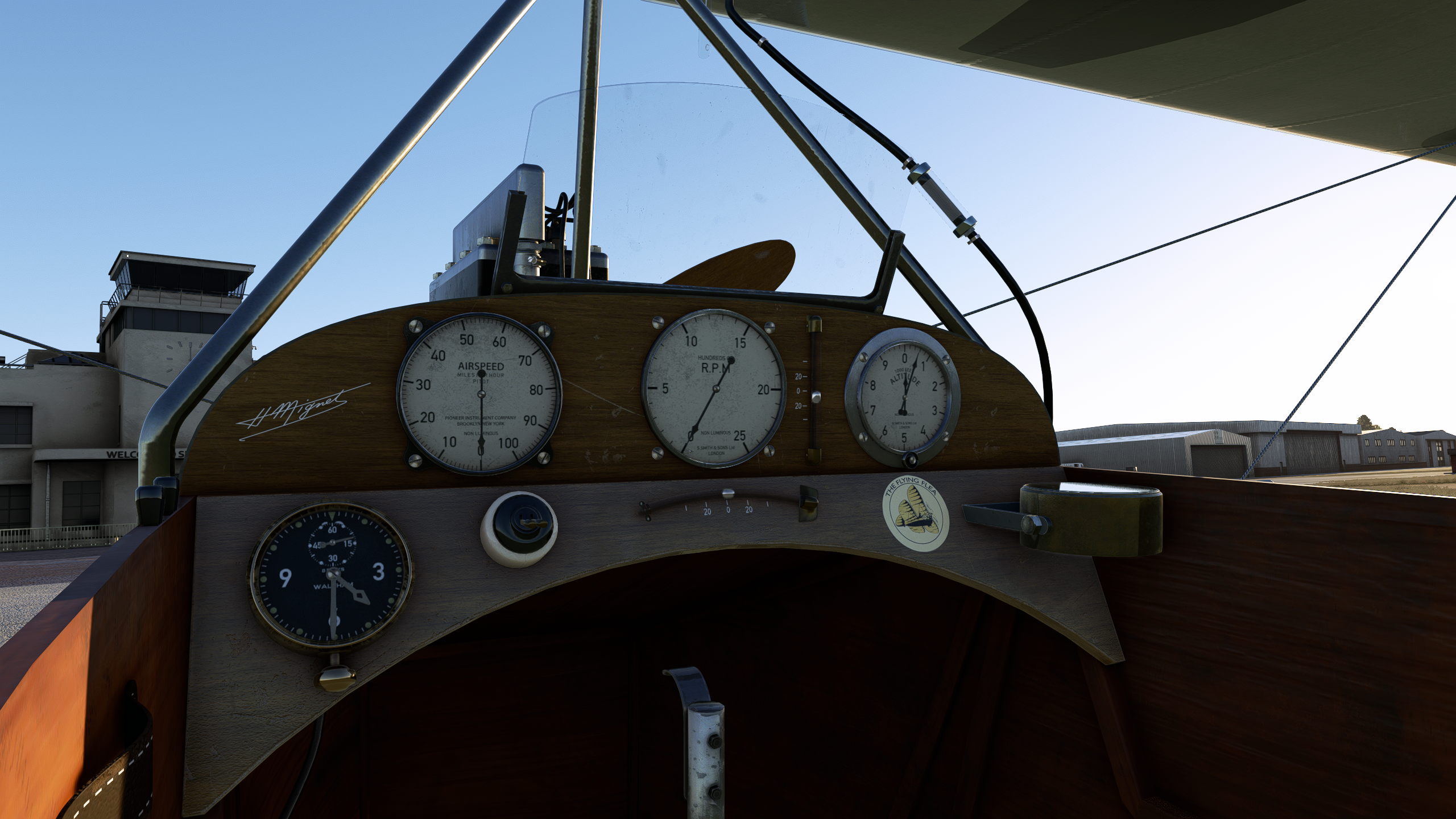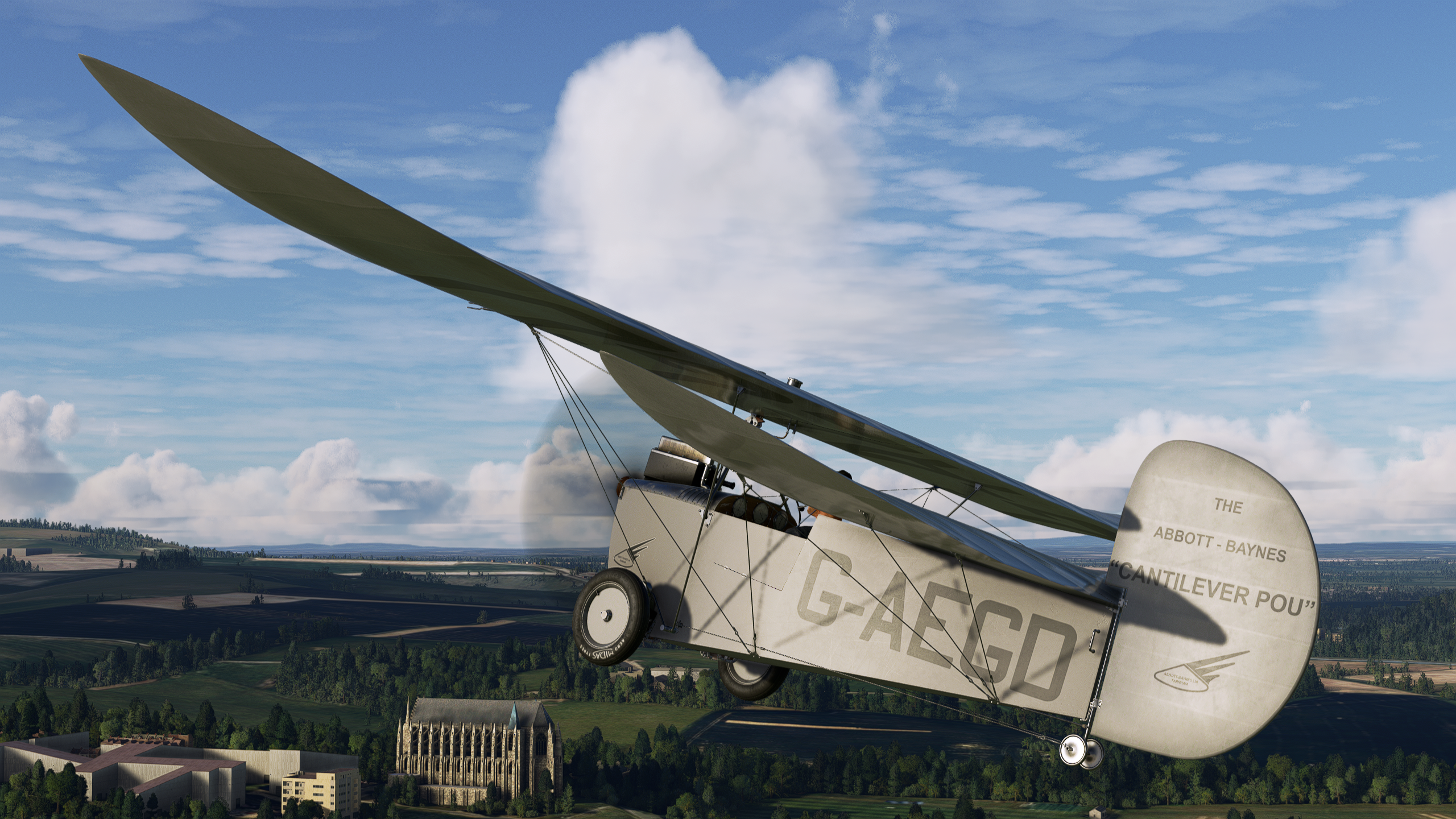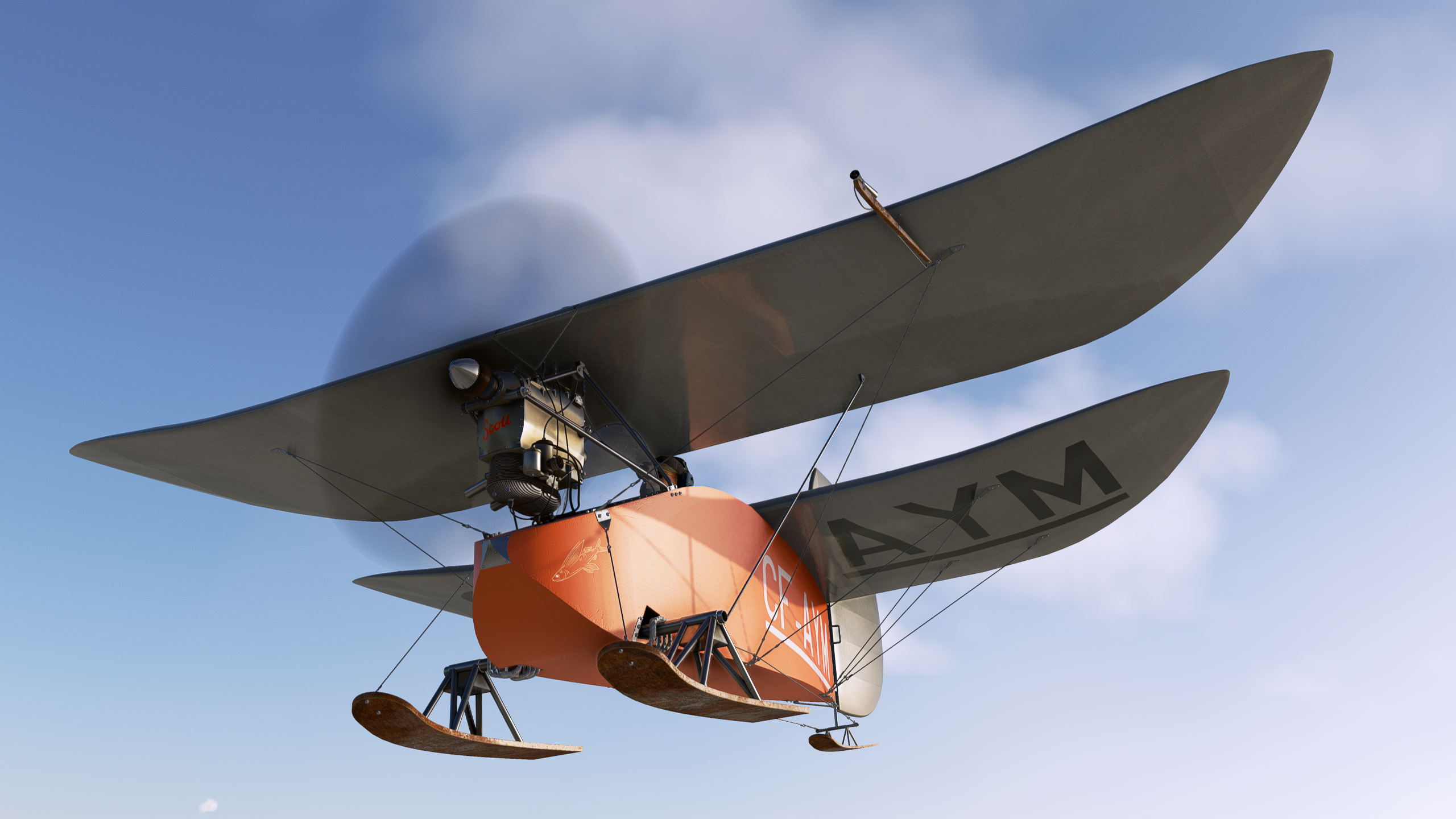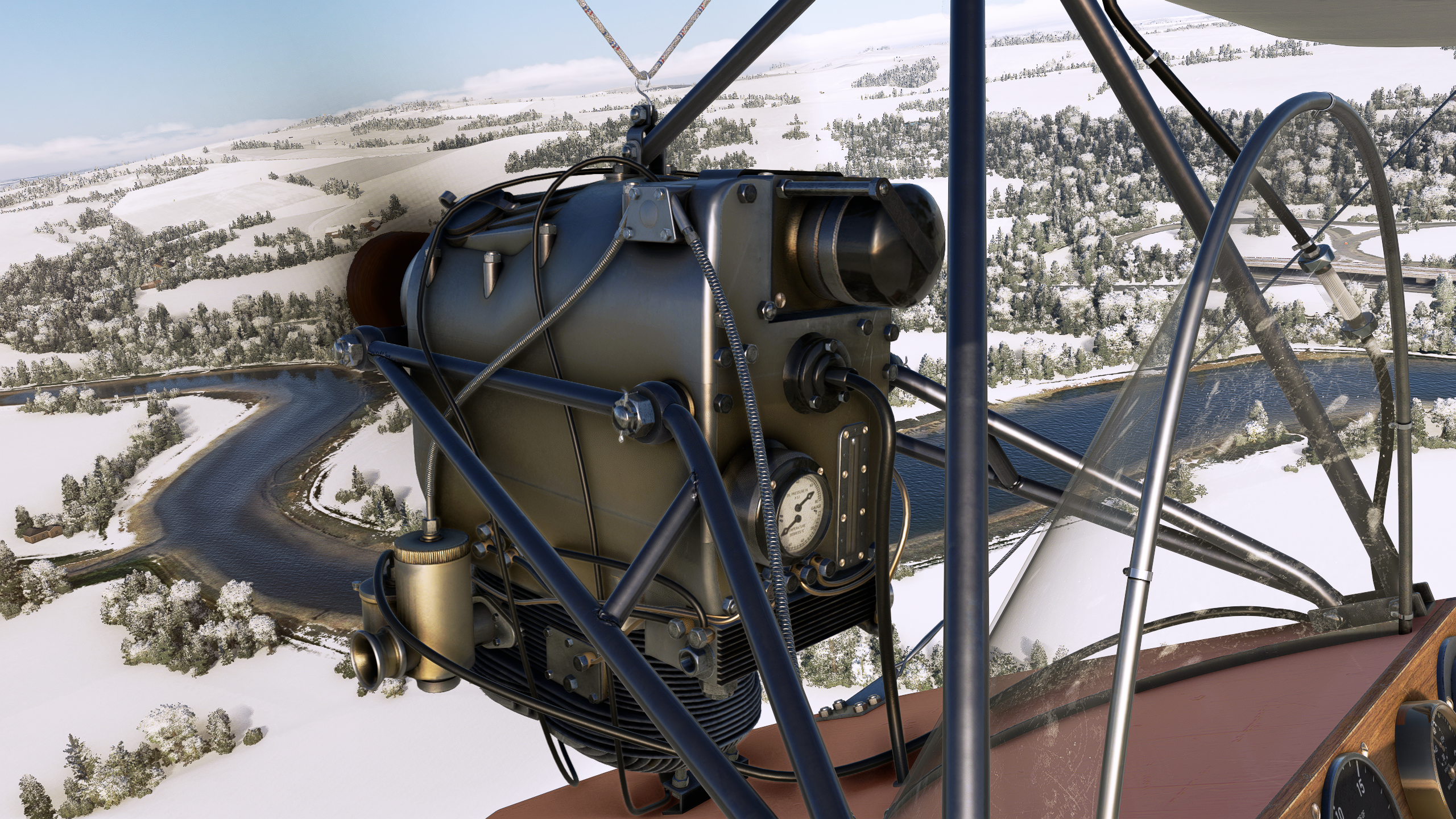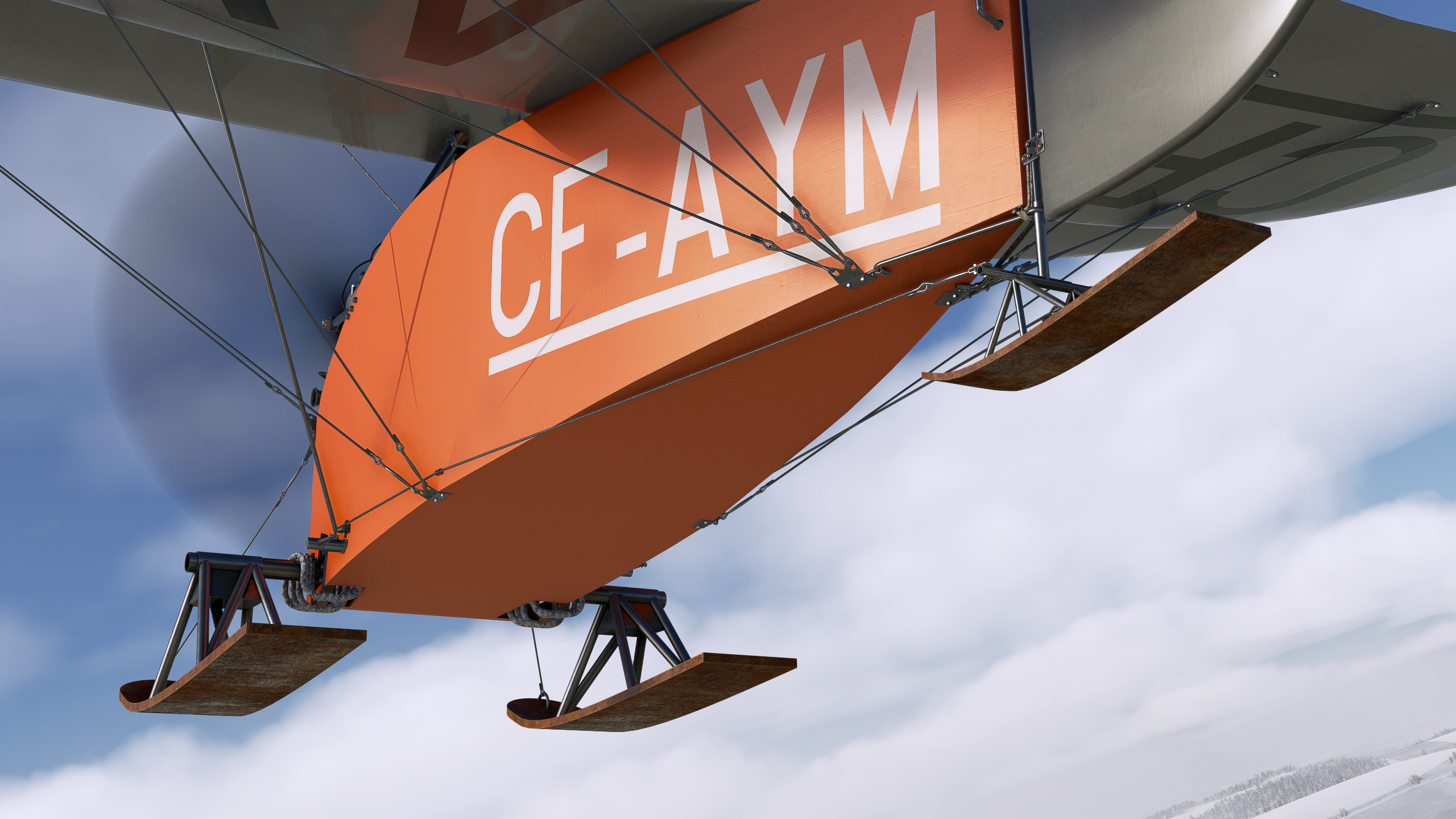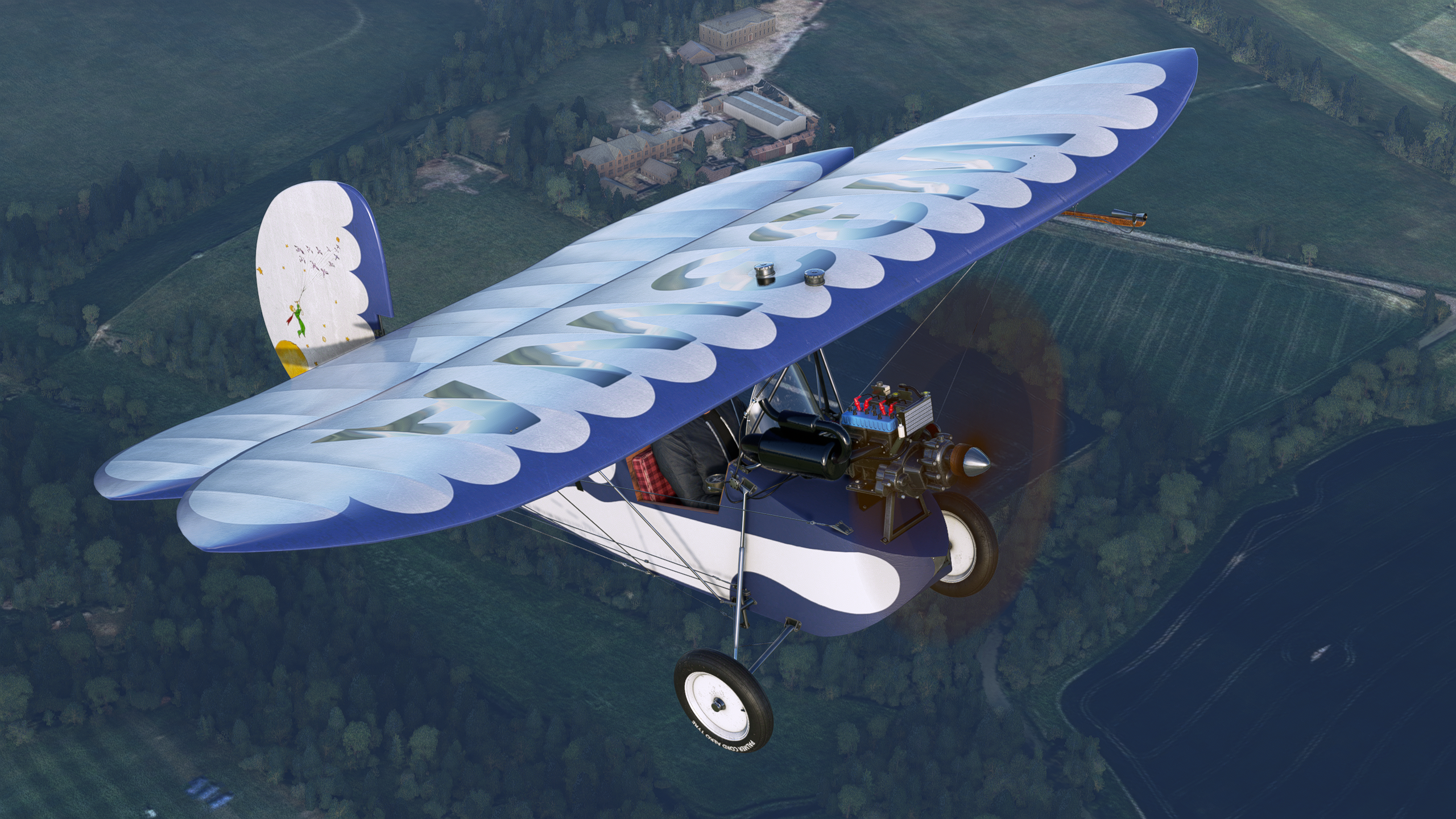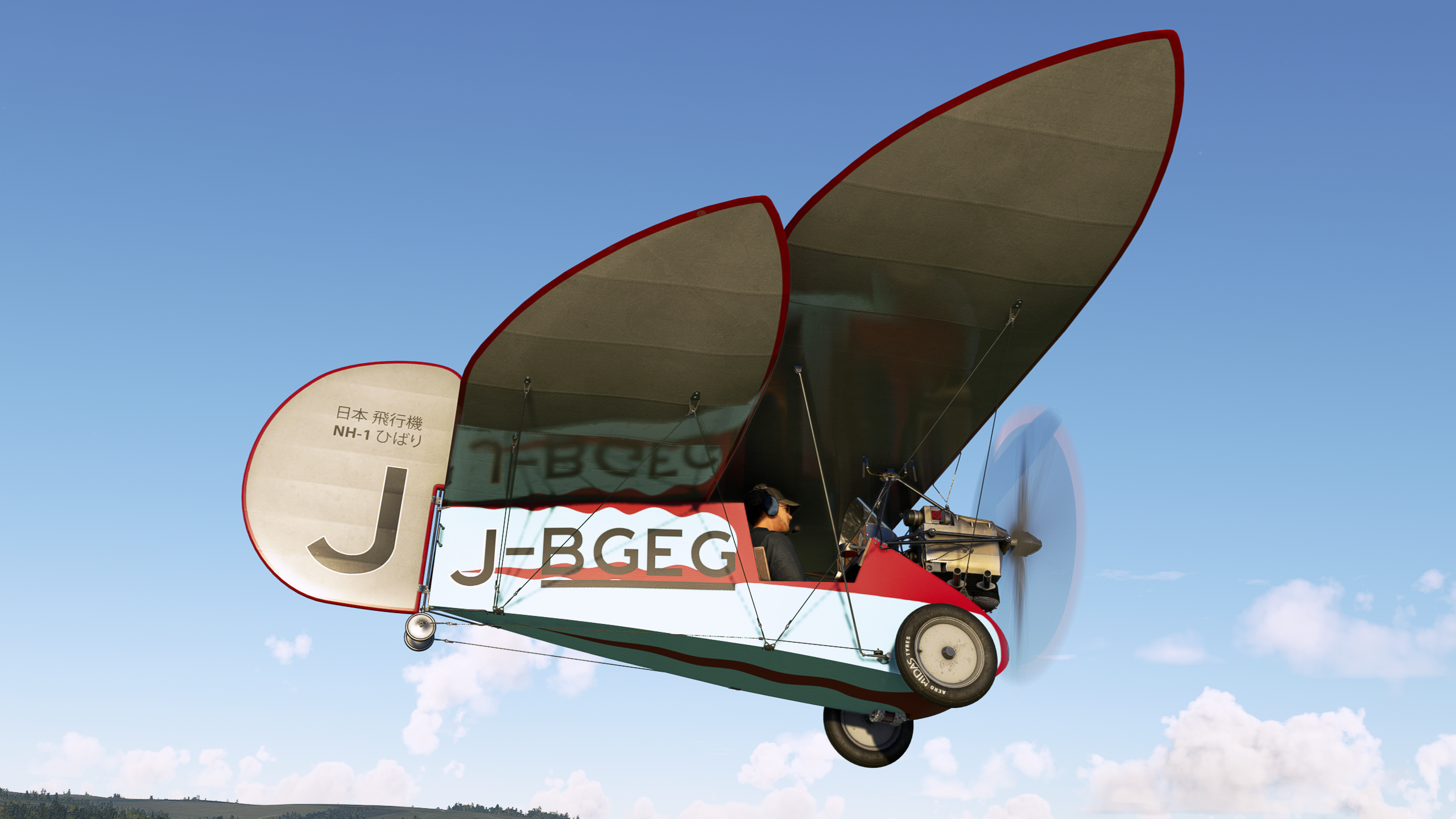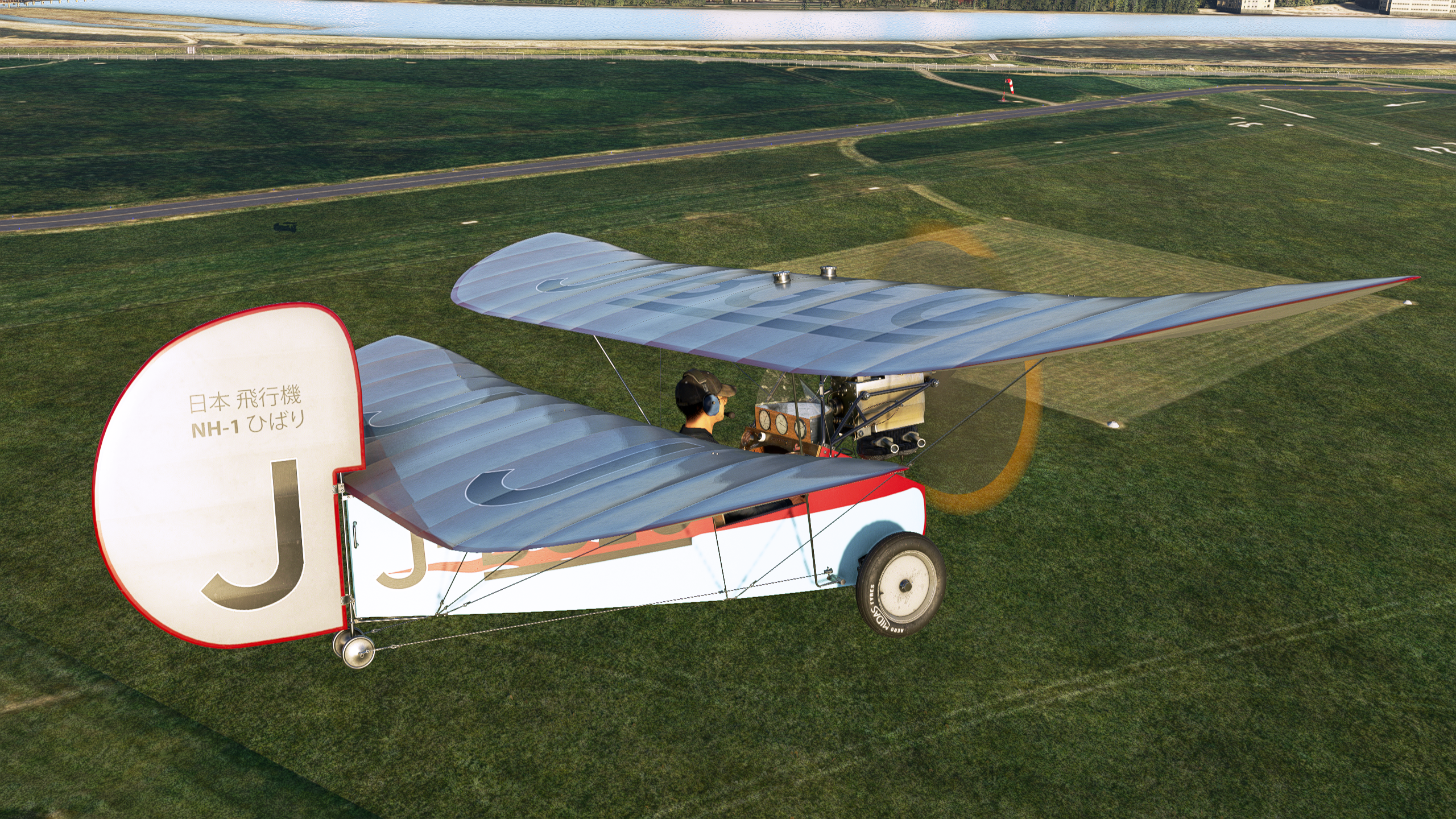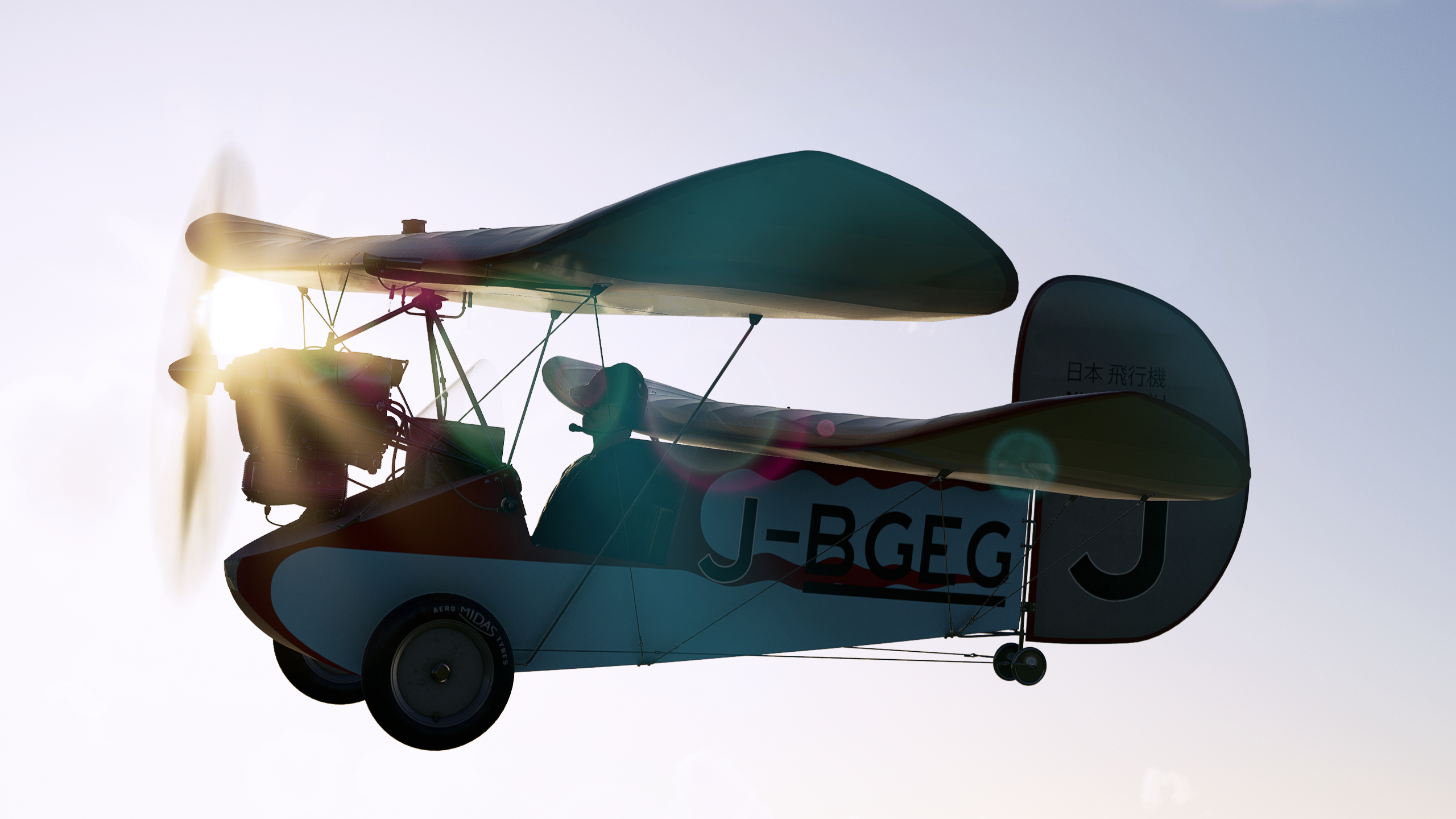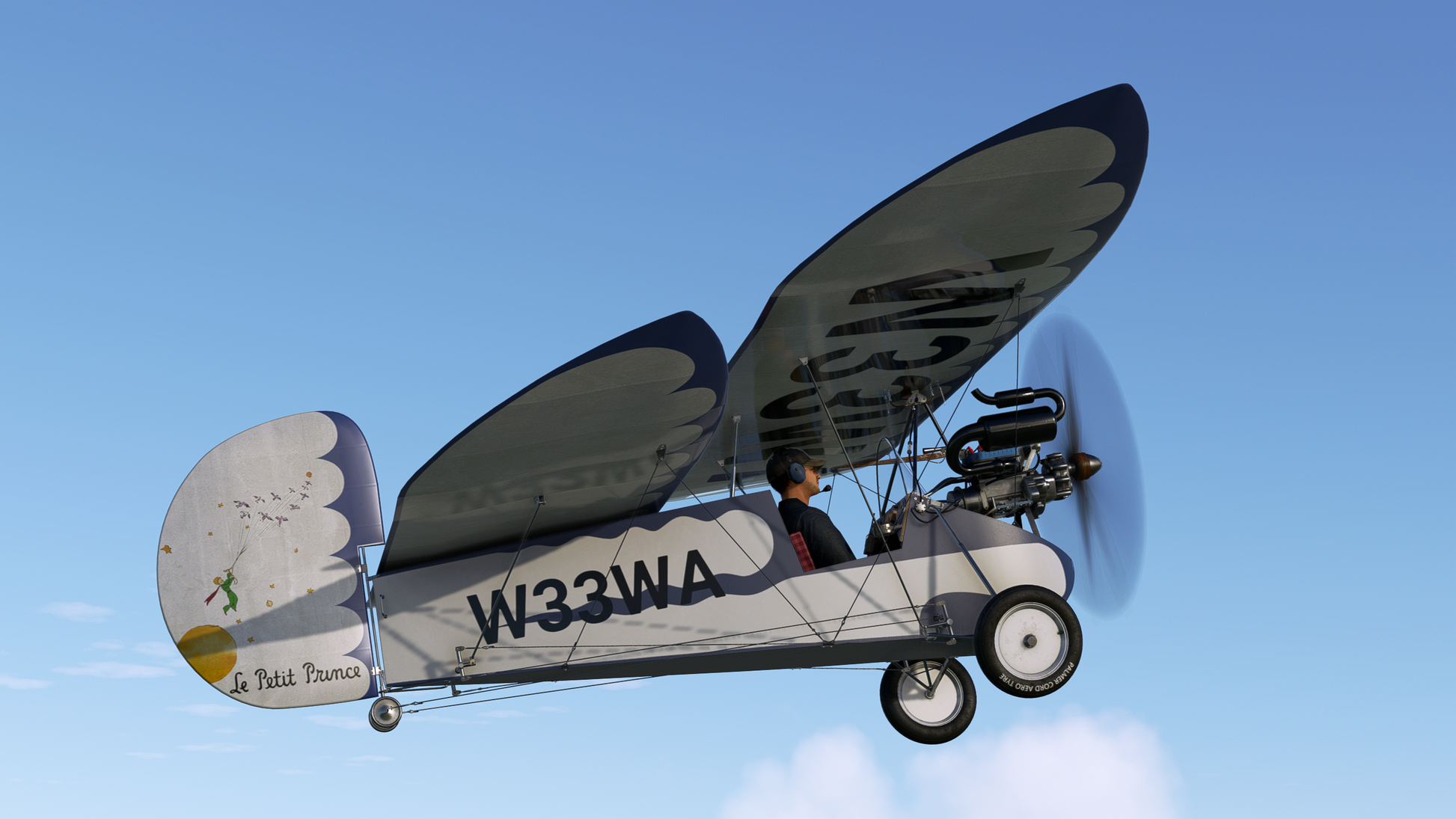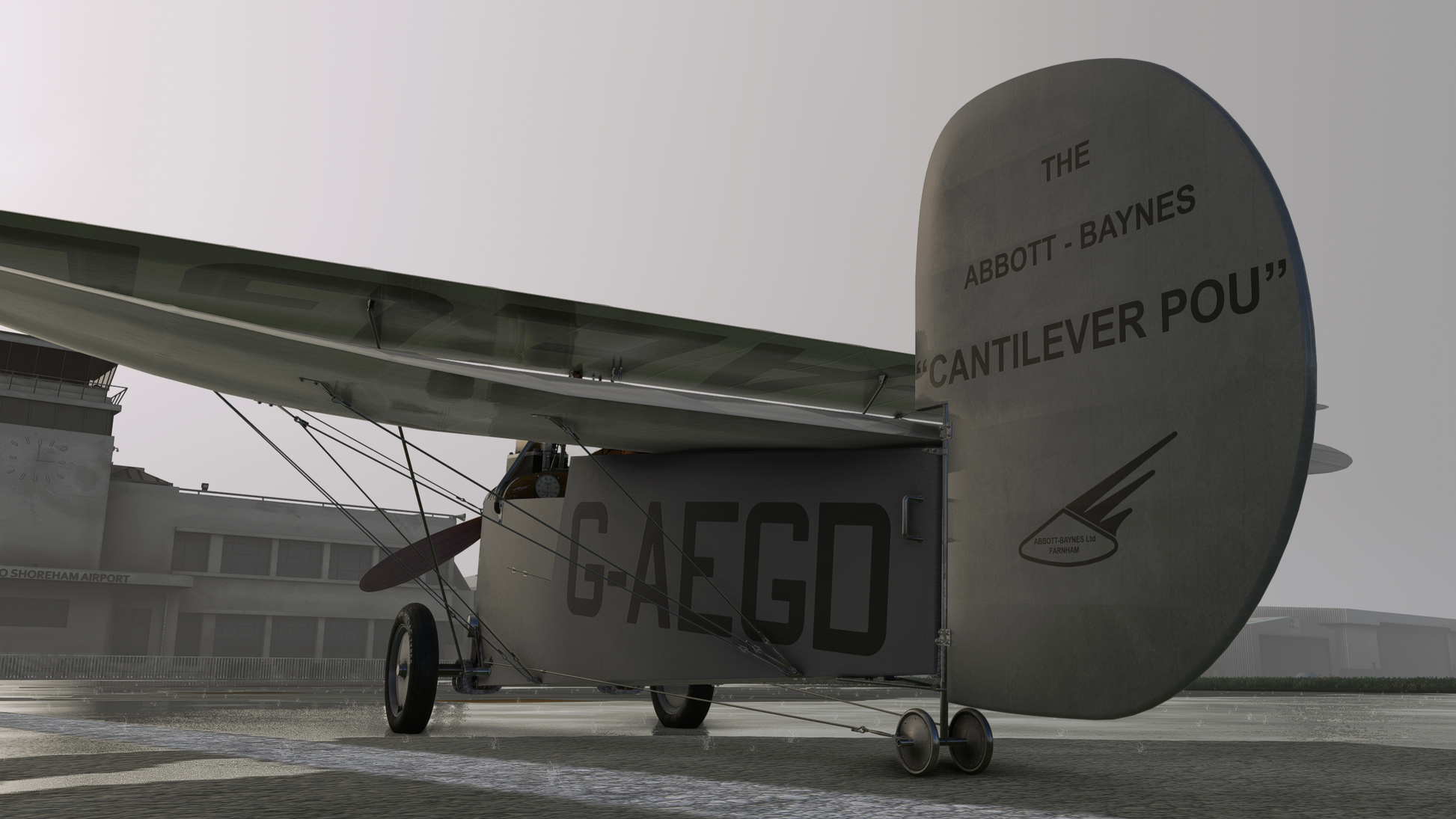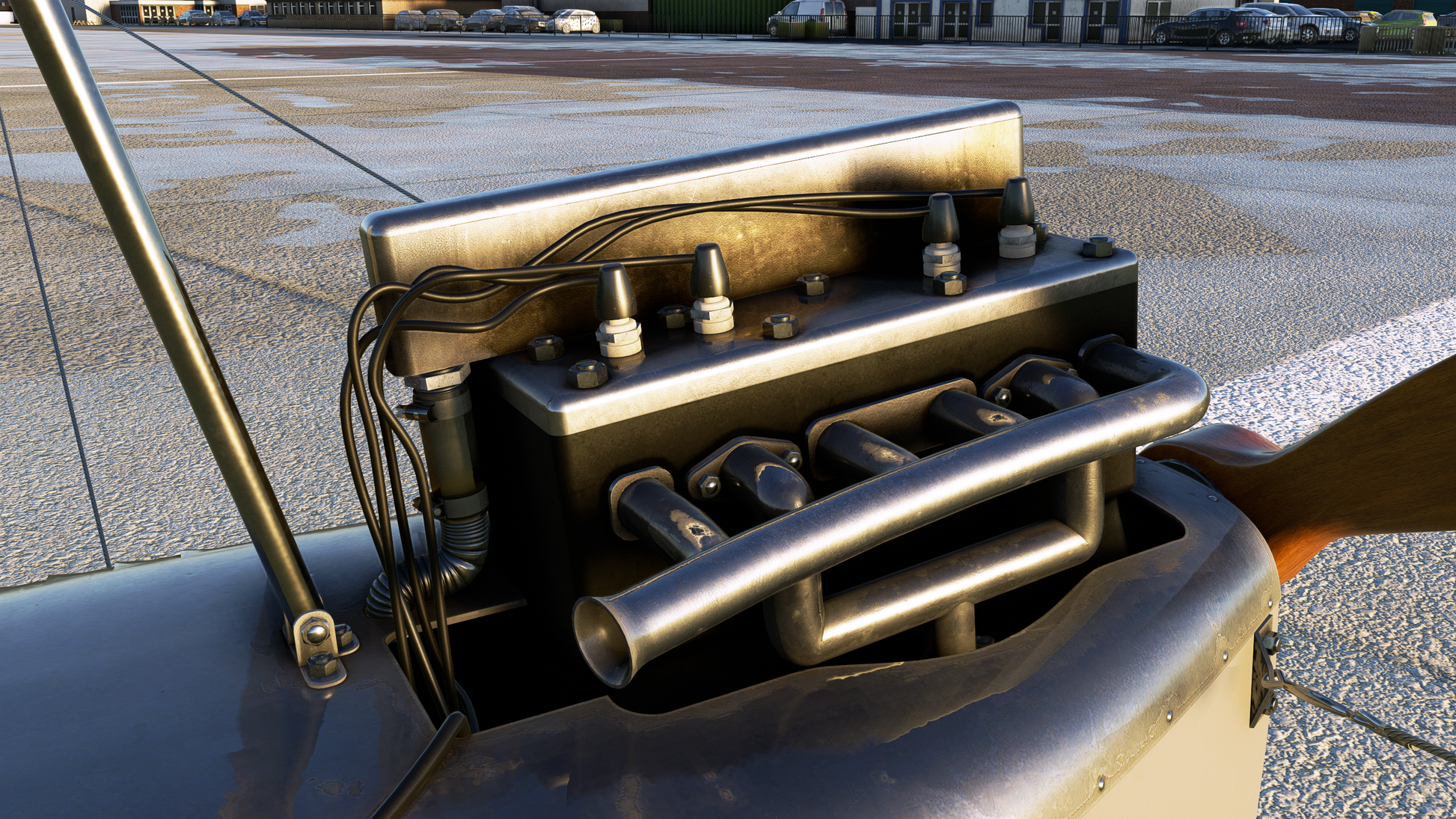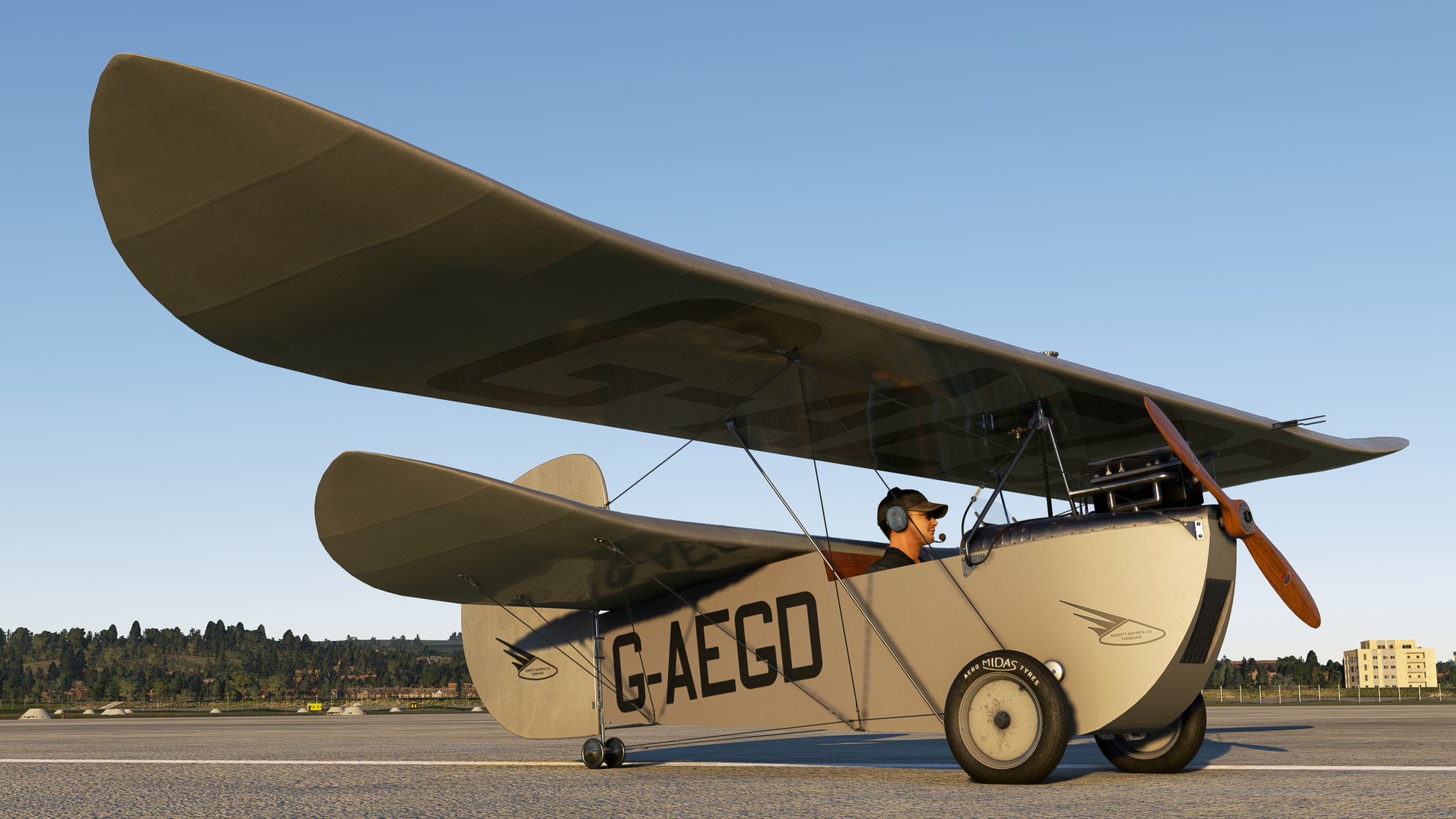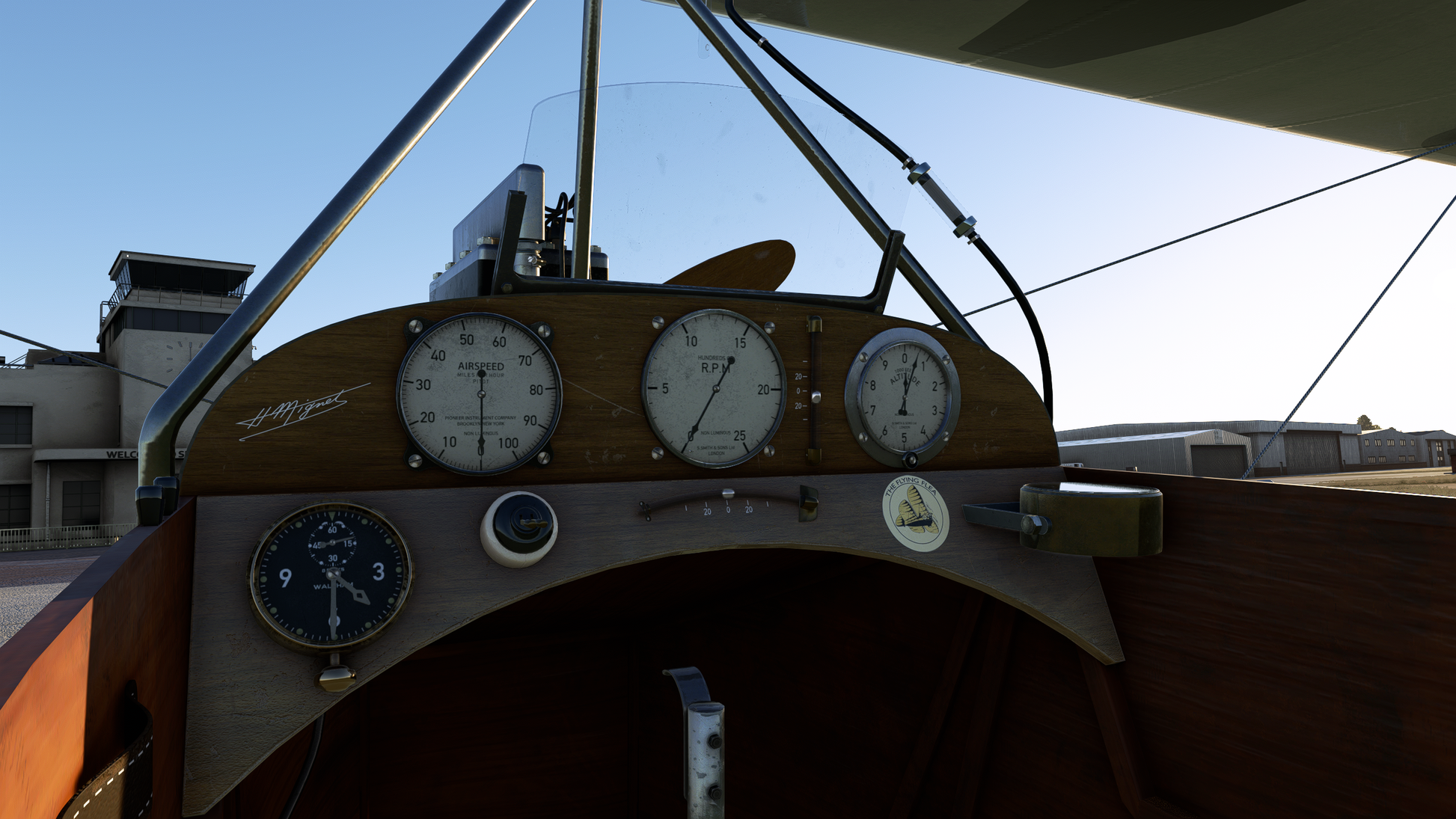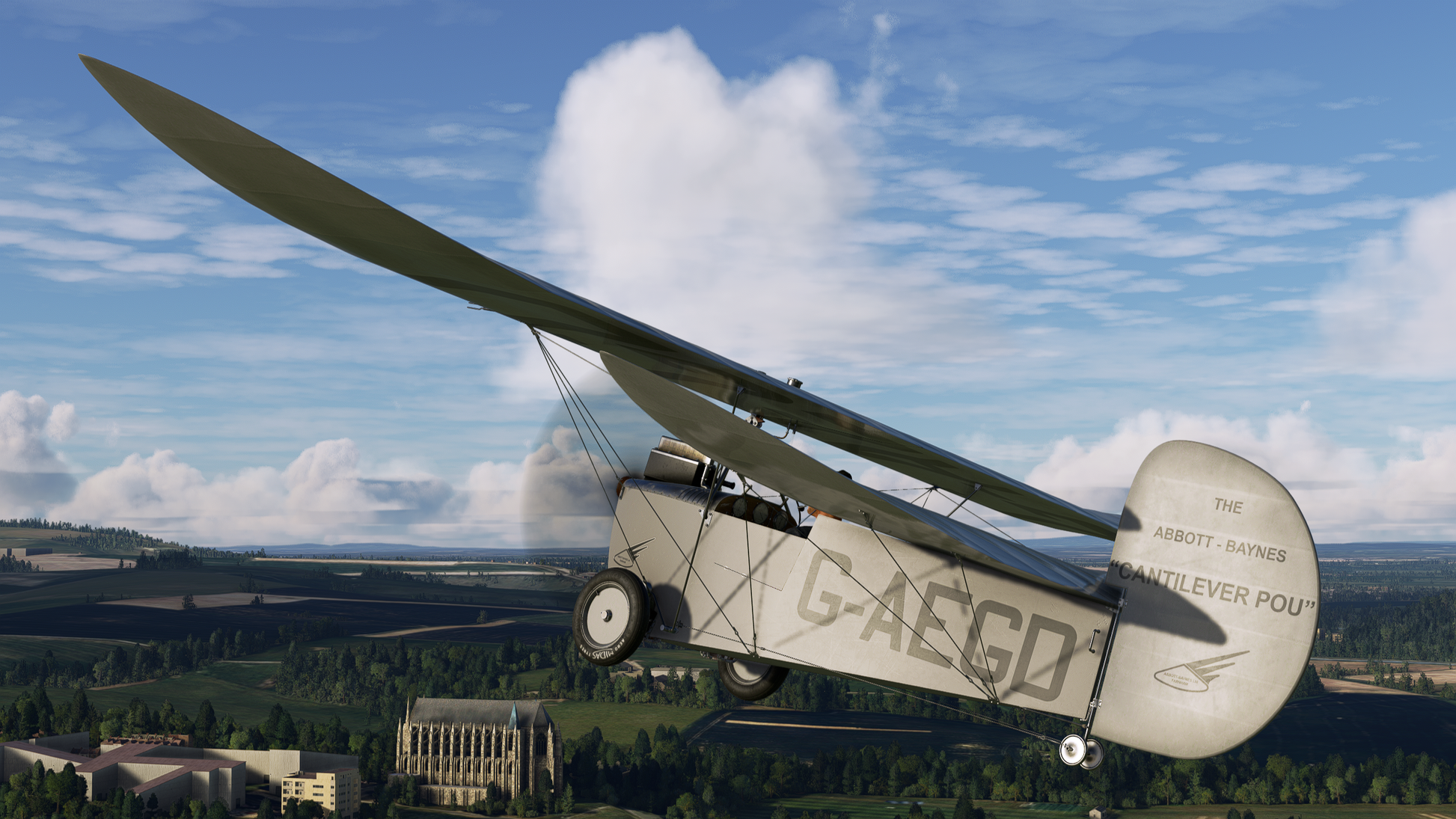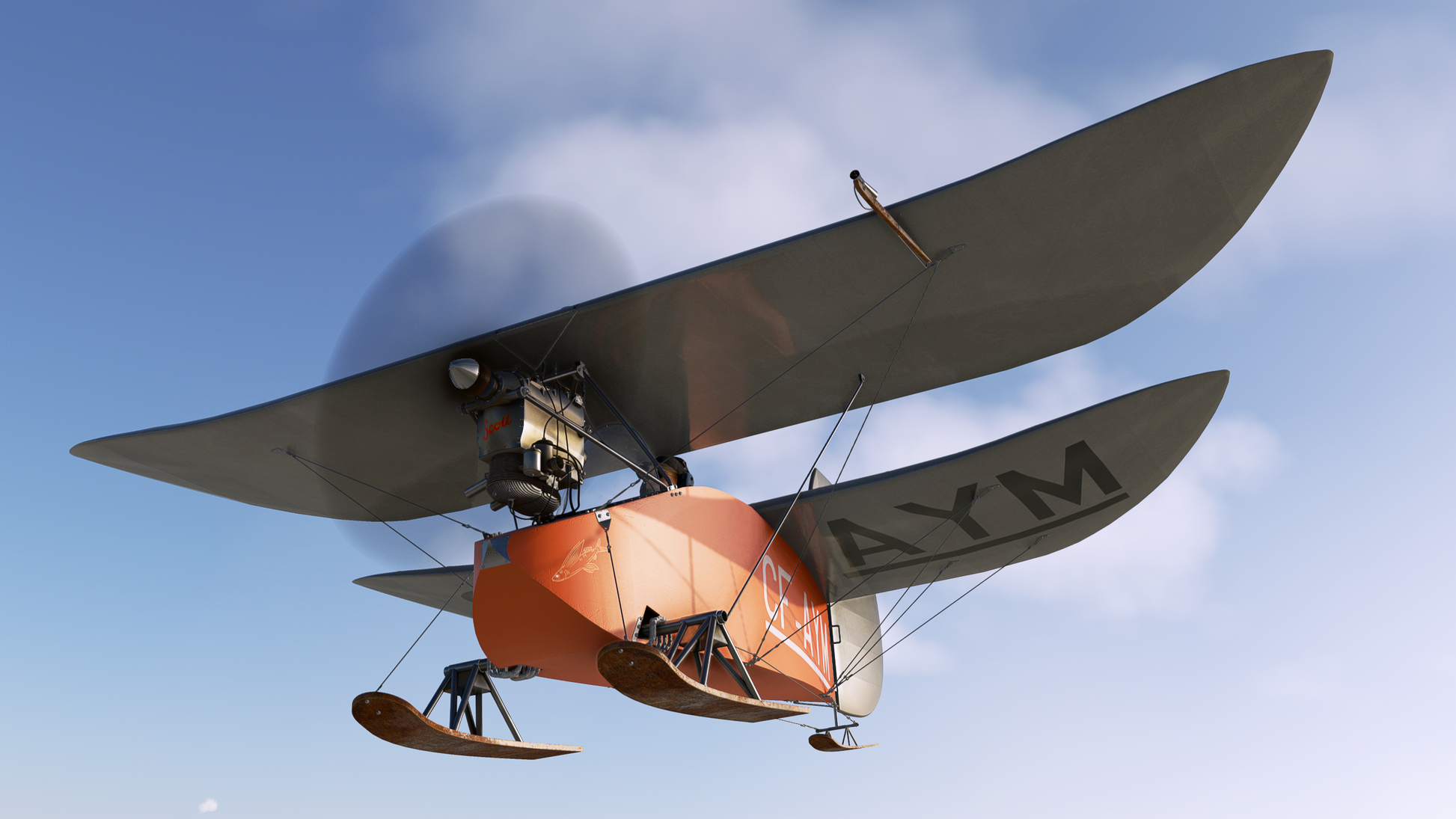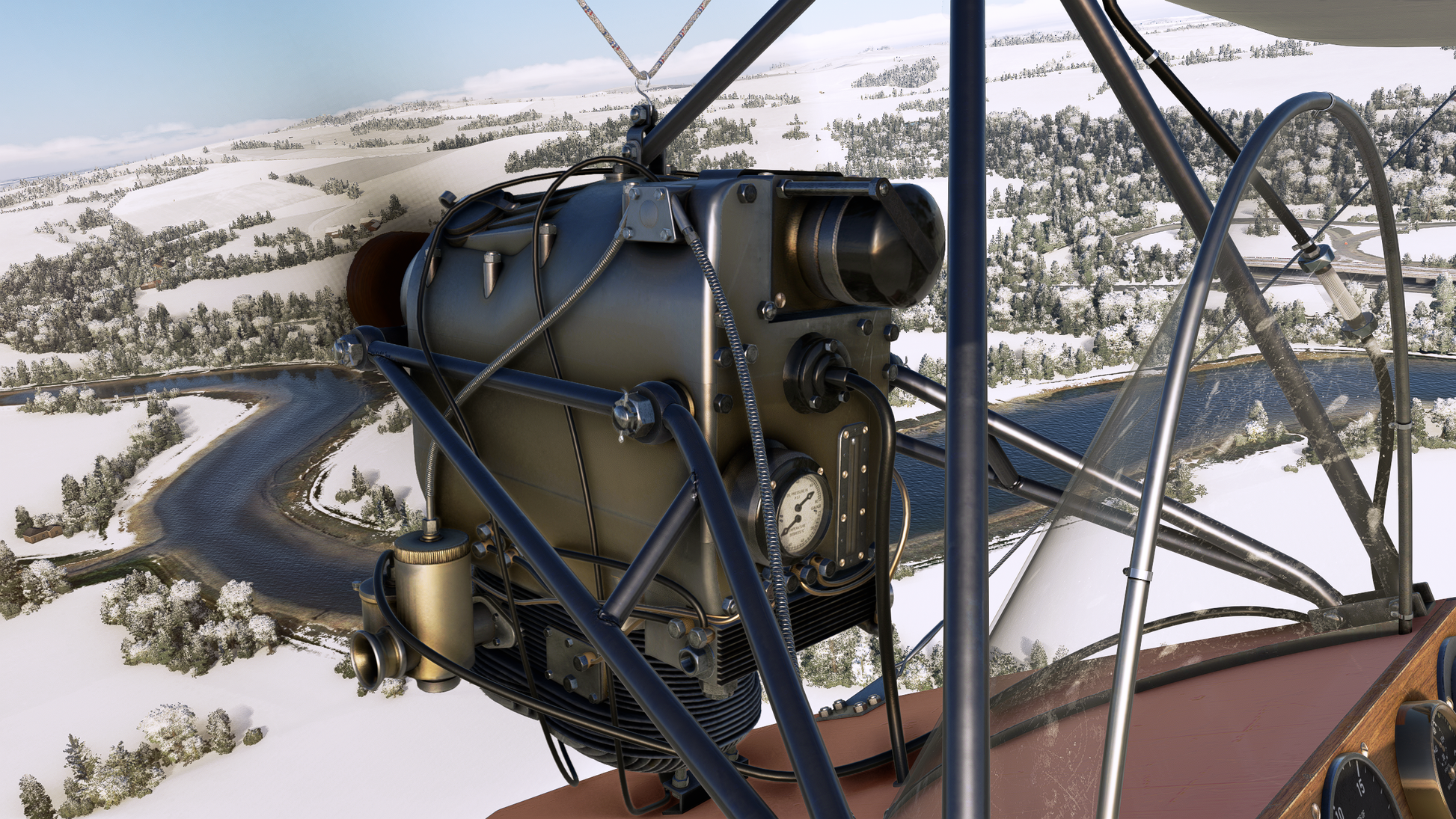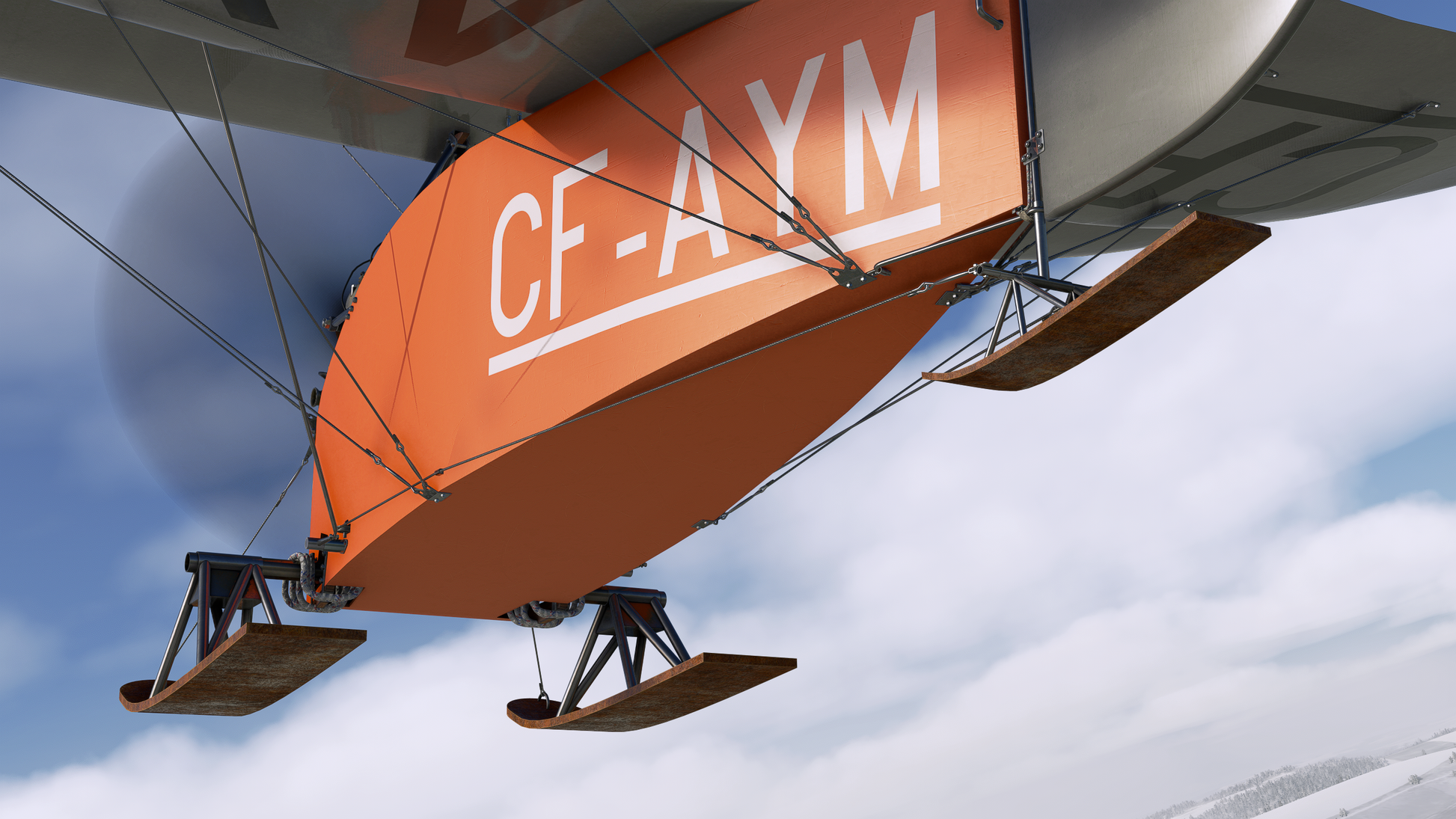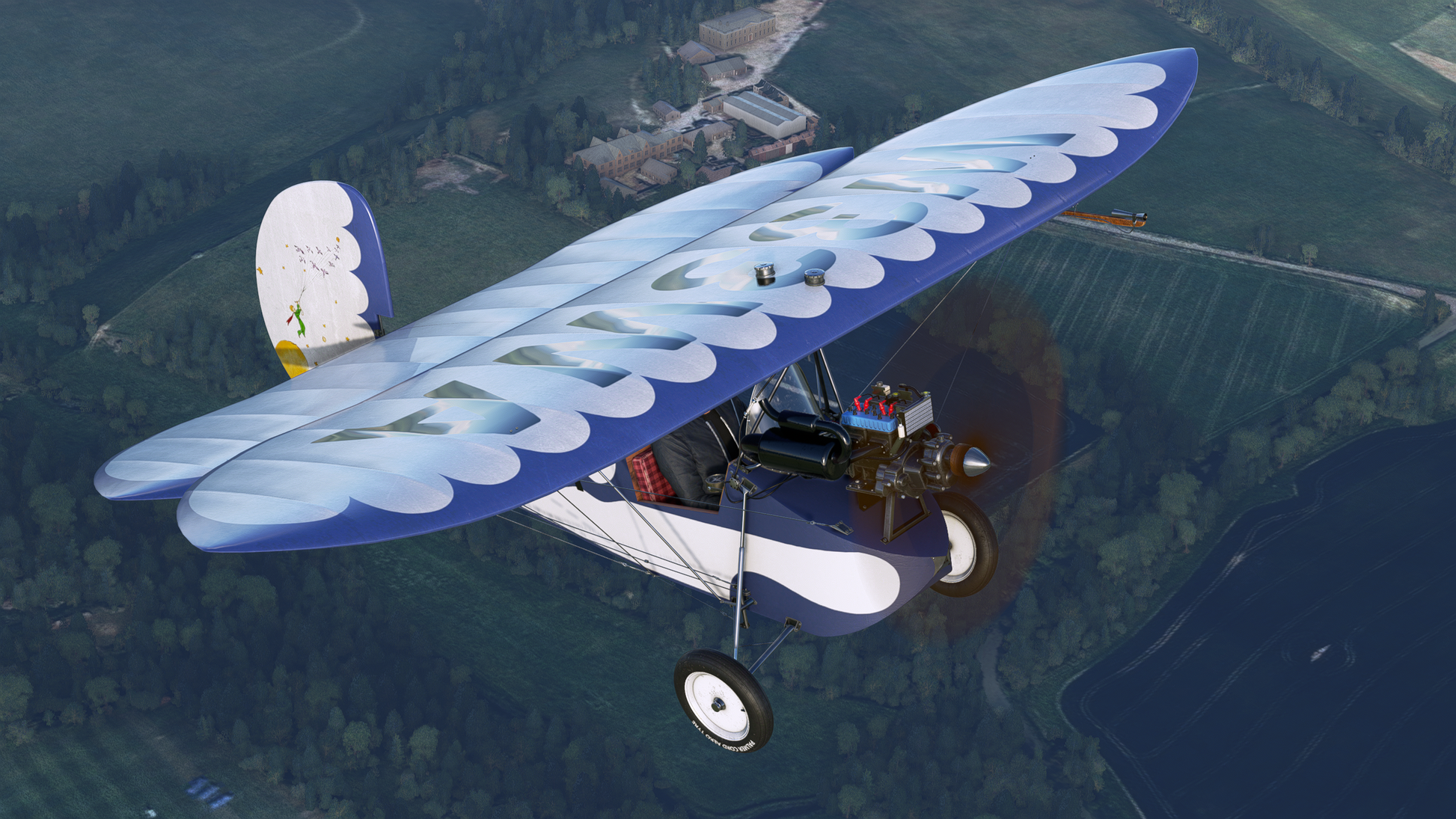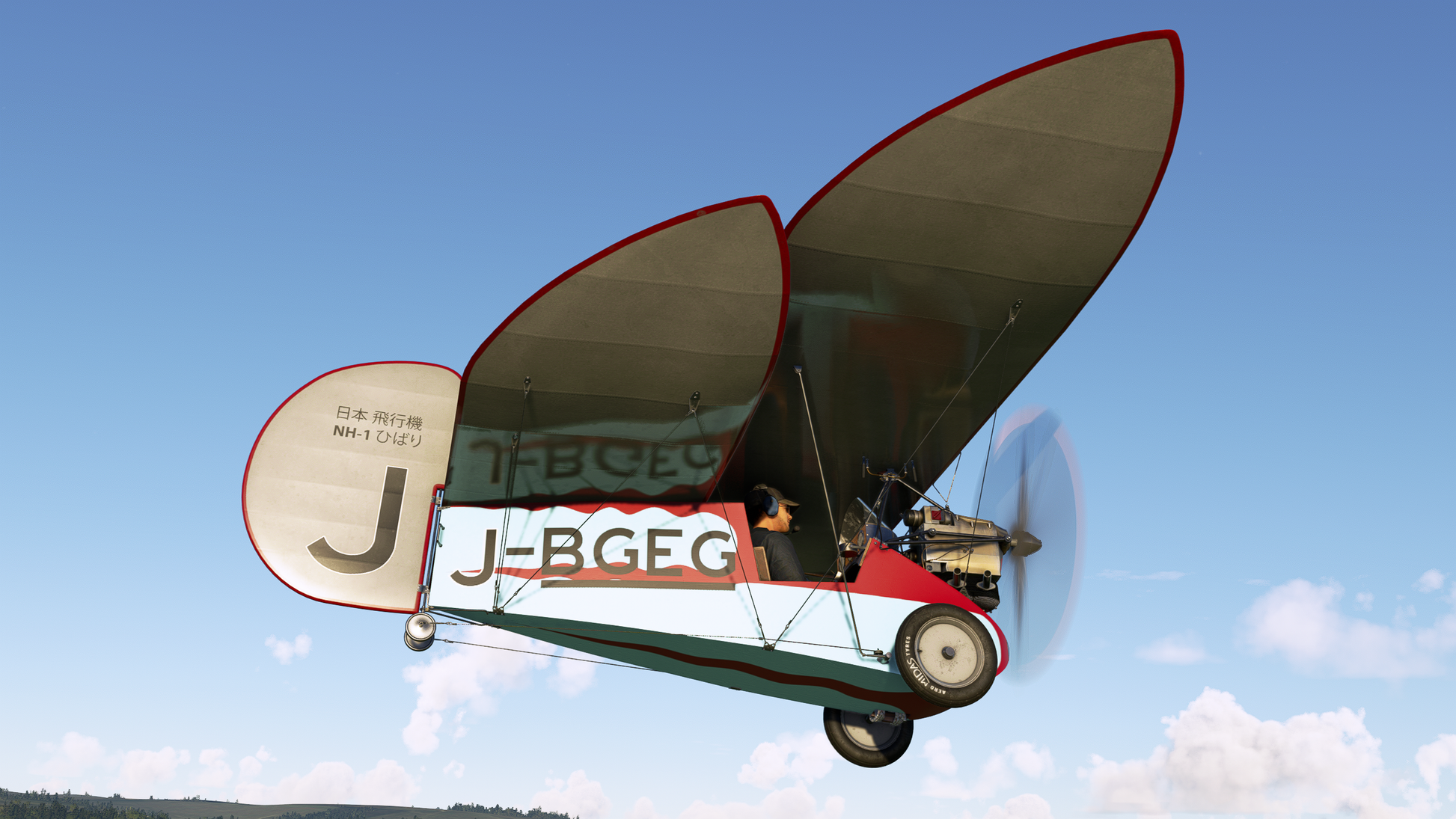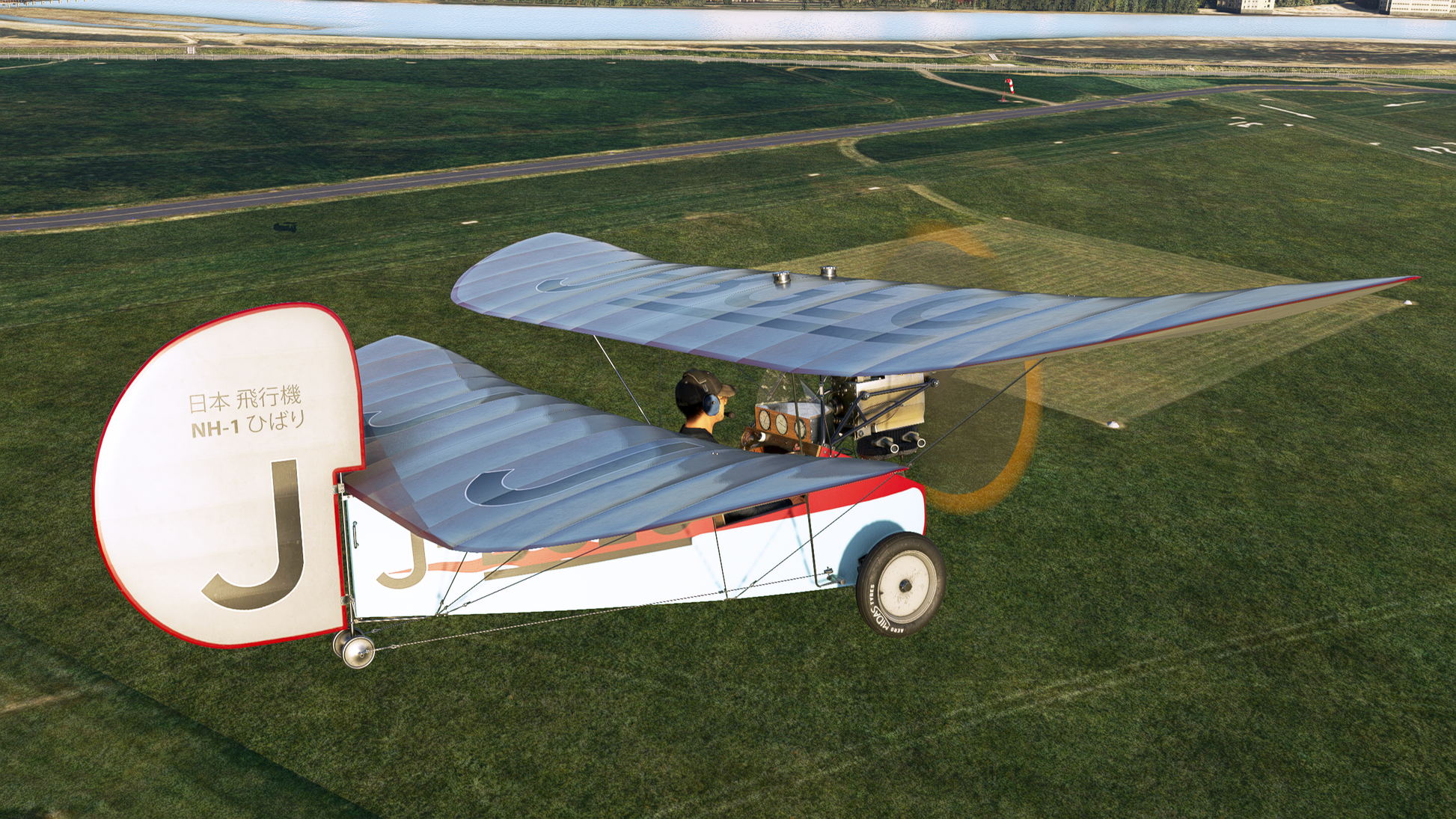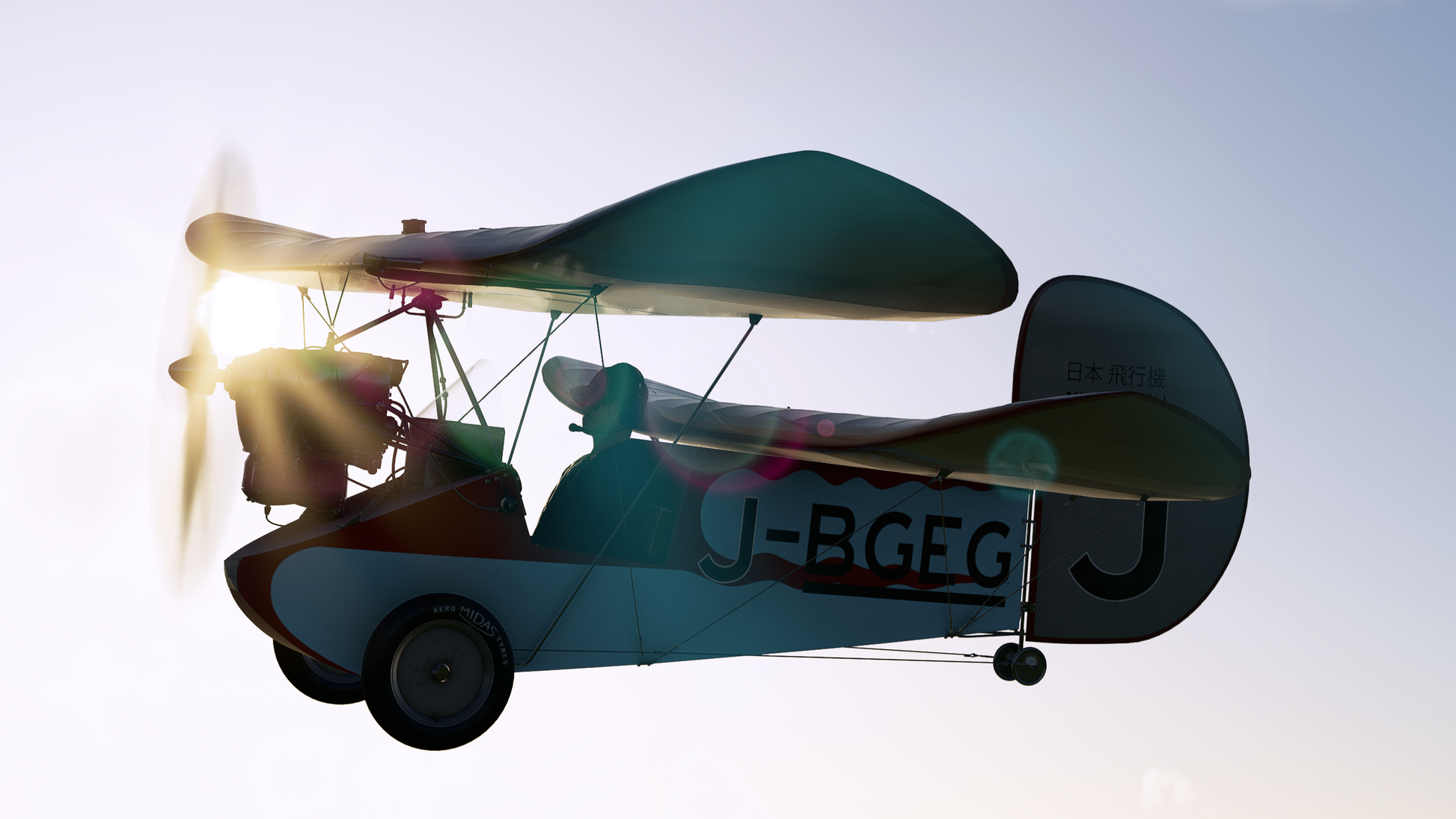Couldn't load pickup availability
* = £3.20 VAT | ¹ = Estimated currency conversion, you will be charged in GBP
Regular price
£15.99 GBP
£19.19 GBP
Regular price
£15.99 GBP
£19.19 GBP
Sale price
£15.99 GBP
£19.19 GBP
Unit price
per
€18.25 EUR¹
$21.37 USD¹
€21.9 EUR
$25.64USD
View full details
The HM.14 is most commonly described as a tandem wing aircraft, although the main wing overlaps the rear wing in the basic design, so it almost qualifies as a highly staggered biplane without horizontal tail.
Construction of the airframe employs mostly birch plywood sheet, spruce laths, steel tubing, steel cables, proprietary metal fittings and fixings, adhesives, and linen fabric. The prototype HM.14 had a wingspan of 5.5 m (18 ft). It was powered by an Aubier et Dunne 540 cc three-cylinder two-stroke motorcycle engine, producing about 17 hp (13 kW) at 4,000 rpm. The engine was connected to the propeller shaft via a chain drive with a 2.5:1 reduction ratio. Subsequent examples were built with many optional engine and wingspan variations. Unlike conventional aircraft, the HM.14 has no ailerons or elevators, and no foot-operated flight controls. The flight control system comprises a conventional control stick.
Fore-and-aft movement of the stick is transmitted via cables to the rear underside of the main wing, that is supported by a single pivot at the front underside, mounted on a pylon on the fuselage. Rearward movement of the stick pulls the cables, and increases the pitch and therefore the lift of the main wing. The aircraft will then pitch up, due to the centre of pressure being forward of the centre of gravity. Side-to-side movement of the stick controls the all-moving rudder via cables. In flight, this produces a stable rolling motion, as required in a banked turn, because the wings both have dihedral. That rolling characteristic is not safely available during take-off or landing, so crosswinds are not easily tolerated.
Construction of the airframe employs mostly birch plywood sheet, spruce laths, steel tubing, steel cables, proprietary metal fittings and fixings, adhesives, and linen fabric. The prototype HM.14 had a wingspan of 5.5 m (18 ft). It was powered by an Aubier et Dunne 540 cc three-cylinder two-stroke motorcycle engine, producing about 17 hp (13 kW) at 4,000 rpm. The engine was connected to the propeller shaft via a chain drive with a 2.5:1 reduction ratio. Subsequent examples were built with many optional engine and wingspan variations. Unlike conventional aircraft, the HM.14 has no ailerons or elevators, and no foot-operated flight controls. The flight control system comprises a conventional control stick.
Fore-and-aft movement of the stick is transmitted via cables to the rear underside of the main wing, that is supported by a single pivot at the front underside, mounted on a pylon on the fuselage. Rearward movement of the stick pulls the cables, and increases the pitch and therefore the lift of the main wing. The aircraft will then pitch up, due to the centre of pressure being forward of the centre of gravity. Side-to-side movement of the stick controls the all-moving rudder via cables. In flight, this produces a stable rolling motion, as required in a banked turn, because the wings both have dihedral. That rolling characteristic is not safely available during take-off or landing, so crosswinds are not easily tolerated.
KEY FEATURES
- 4K PBR textures
- 3D; propeller blur, gauges & wing ribs
- Custom camera positions
- Windscreen rain & icing effects.
- 4 different engine models (Scott Squirrel, Carden Ford, ROTAX, Salmson)
- 10 different 3D models built from scratch, as well as 18 liveries
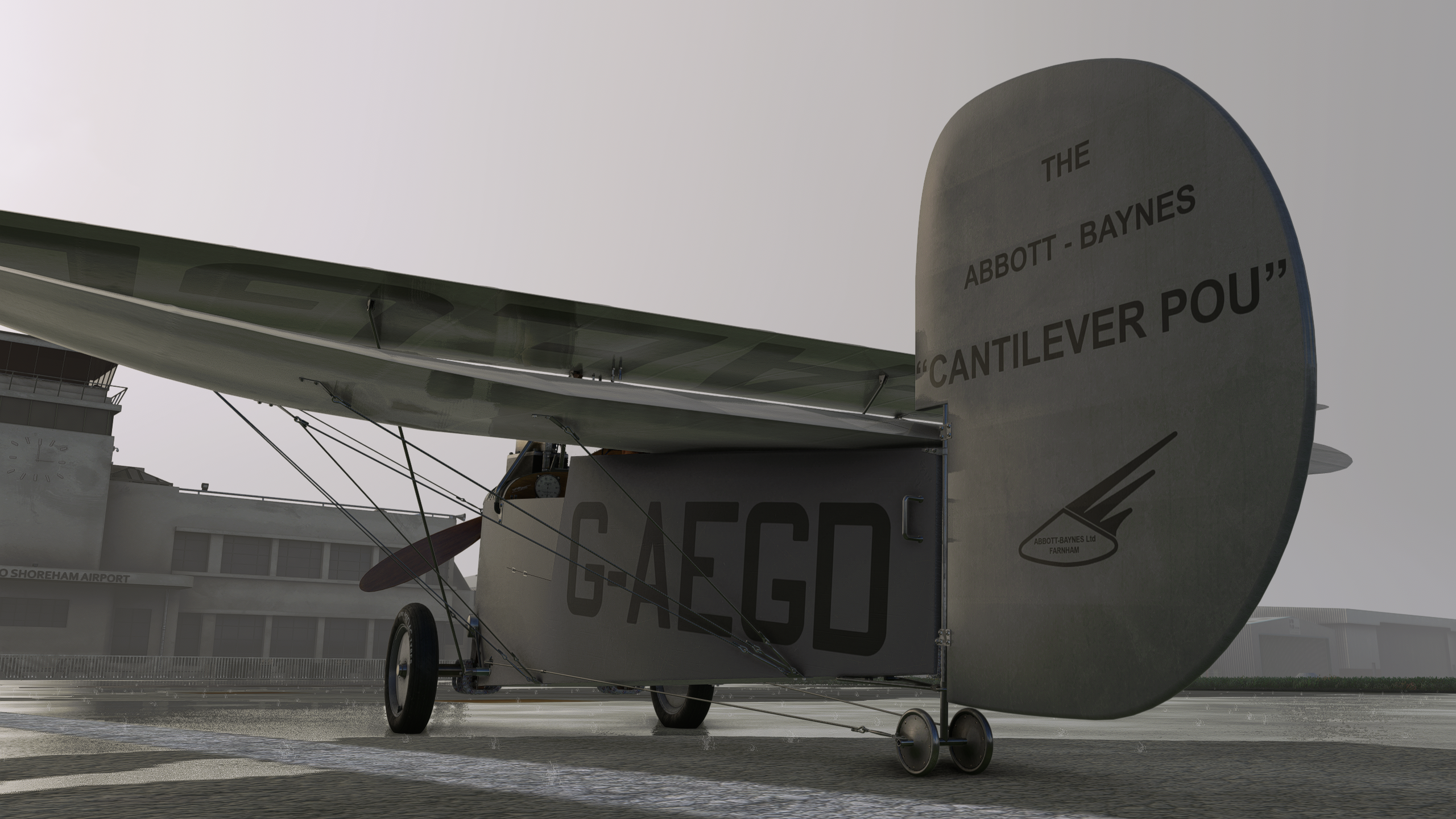
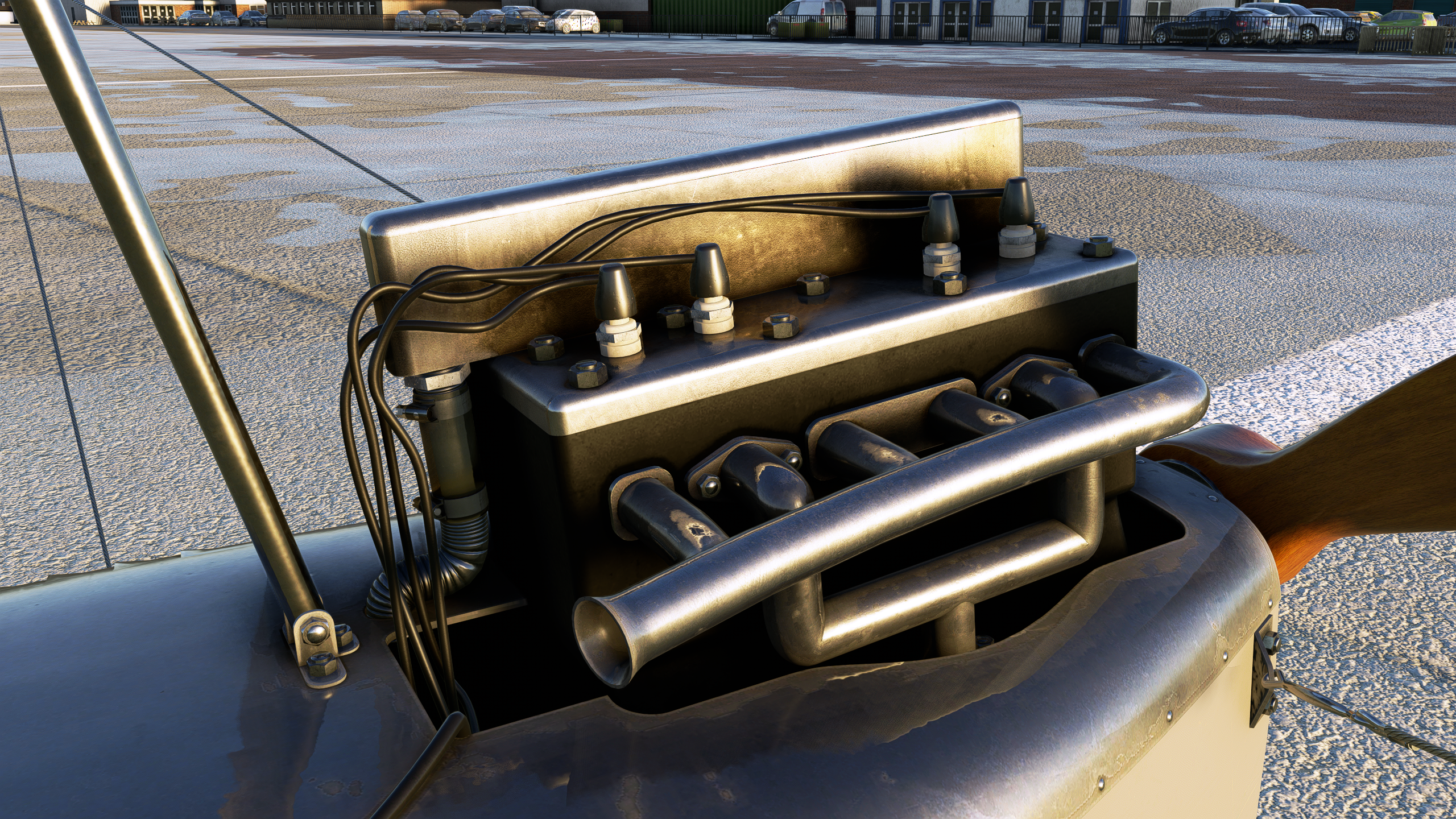
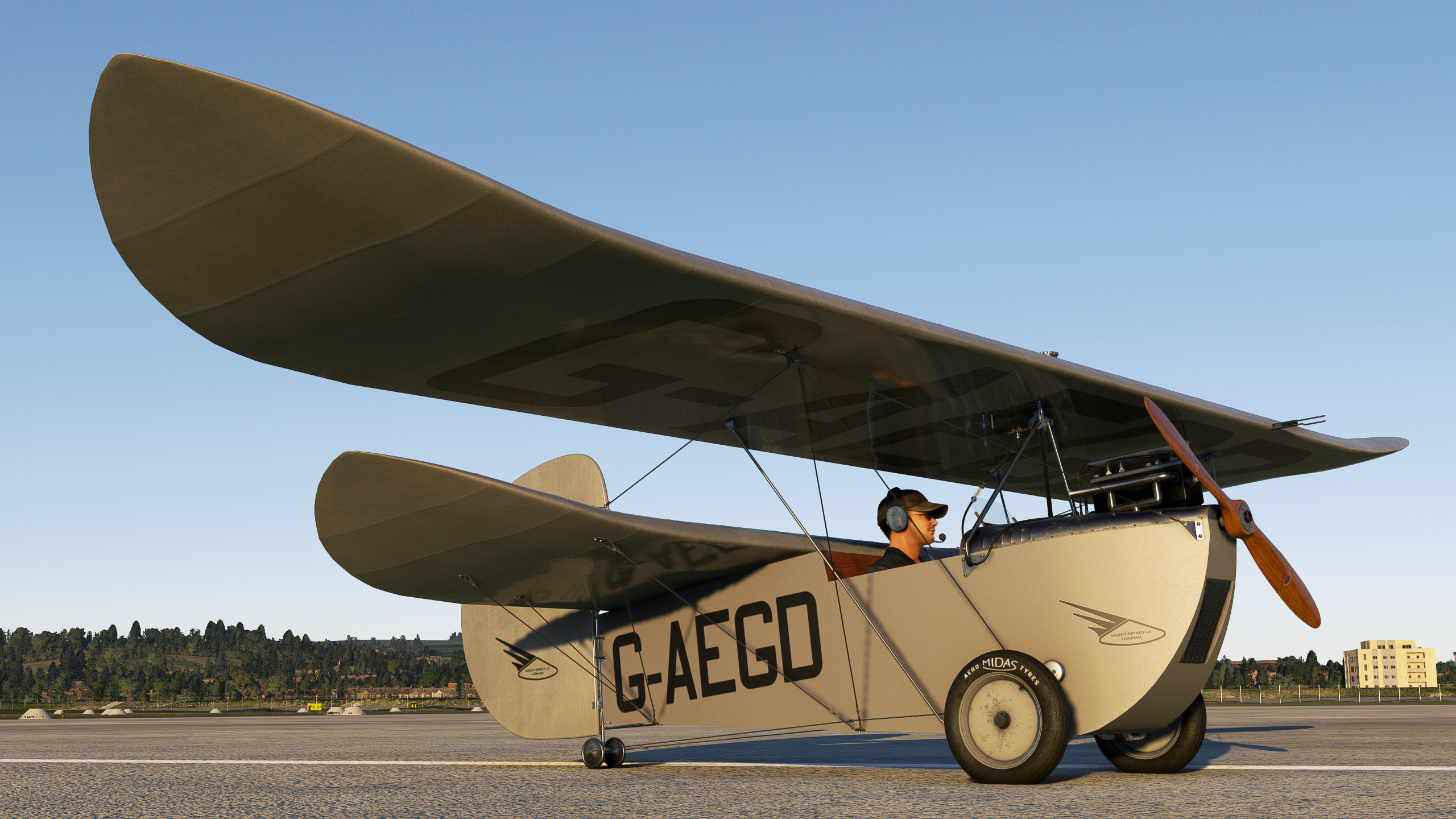
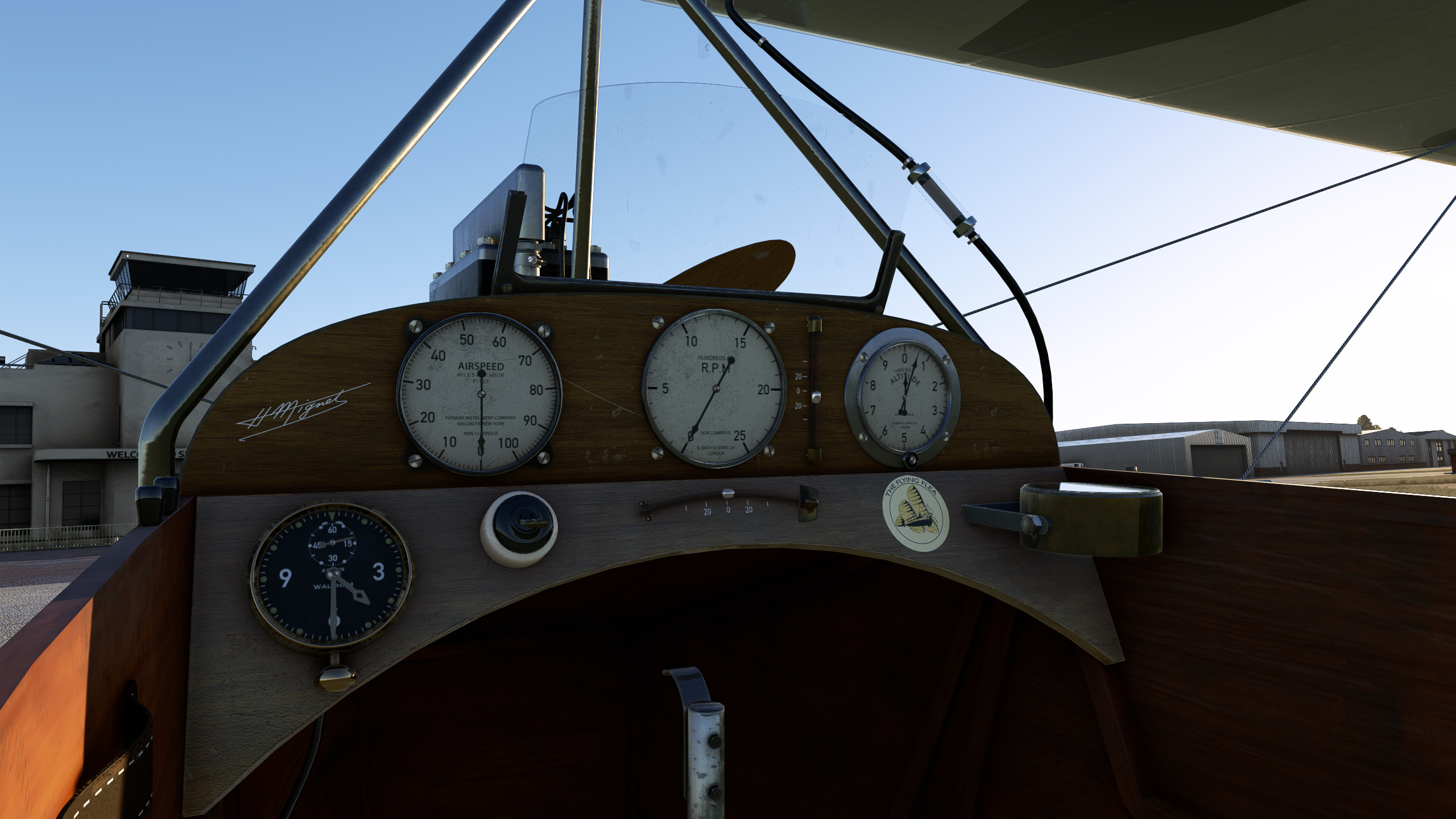
PRODUCT GALLERY
FULL FEATURES LIST
- 4K PBR textures
- 3D; propeller blur, gauges & wing ribs
- Custom camera positions
- Windscreen rain & icing effects.
- 4 different engine models (Scott Squirrel, Carden Ford, ROTAX, Salmson)
- 10 different 3D models built from scratch, as well as 18 liveries
- Custom plexiglass textures, decals, textures, animations and checklists


